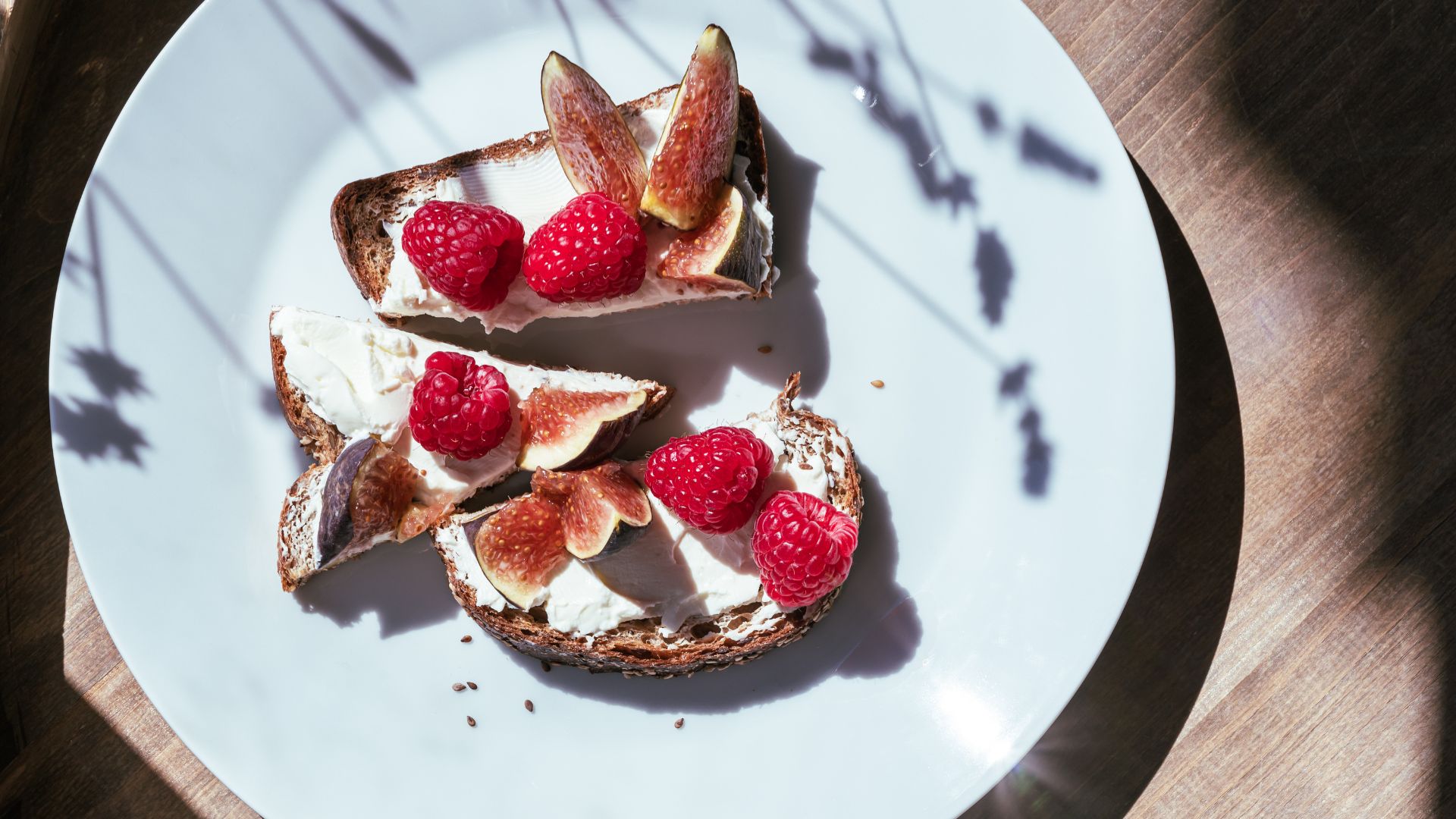
If you always find yourself feeling hungry post-exercise, having one of the best foods to eat after a workout to hand can be the best way to re-fuel and stay full throughout the day.
Whether you're doing a lighter workout (like yoga or pilates) or something like strength training, there are three main nutrients we need to keep our energy levels up during and after exercise: carbohydrates, the main energy source used by the body; protein, the most-filling macronutrient and one that helps the muscles to grow and repair post-exercise; and electrolytes, including potassium and magnesium for rehydration.
There's no need to go looking for the best protein powders or complex recipes though. Many everyday foods contain ingredients with these all-important nutrients - including those you may be eating already.
32 of the best foods to eat after a workout
1. Eggs
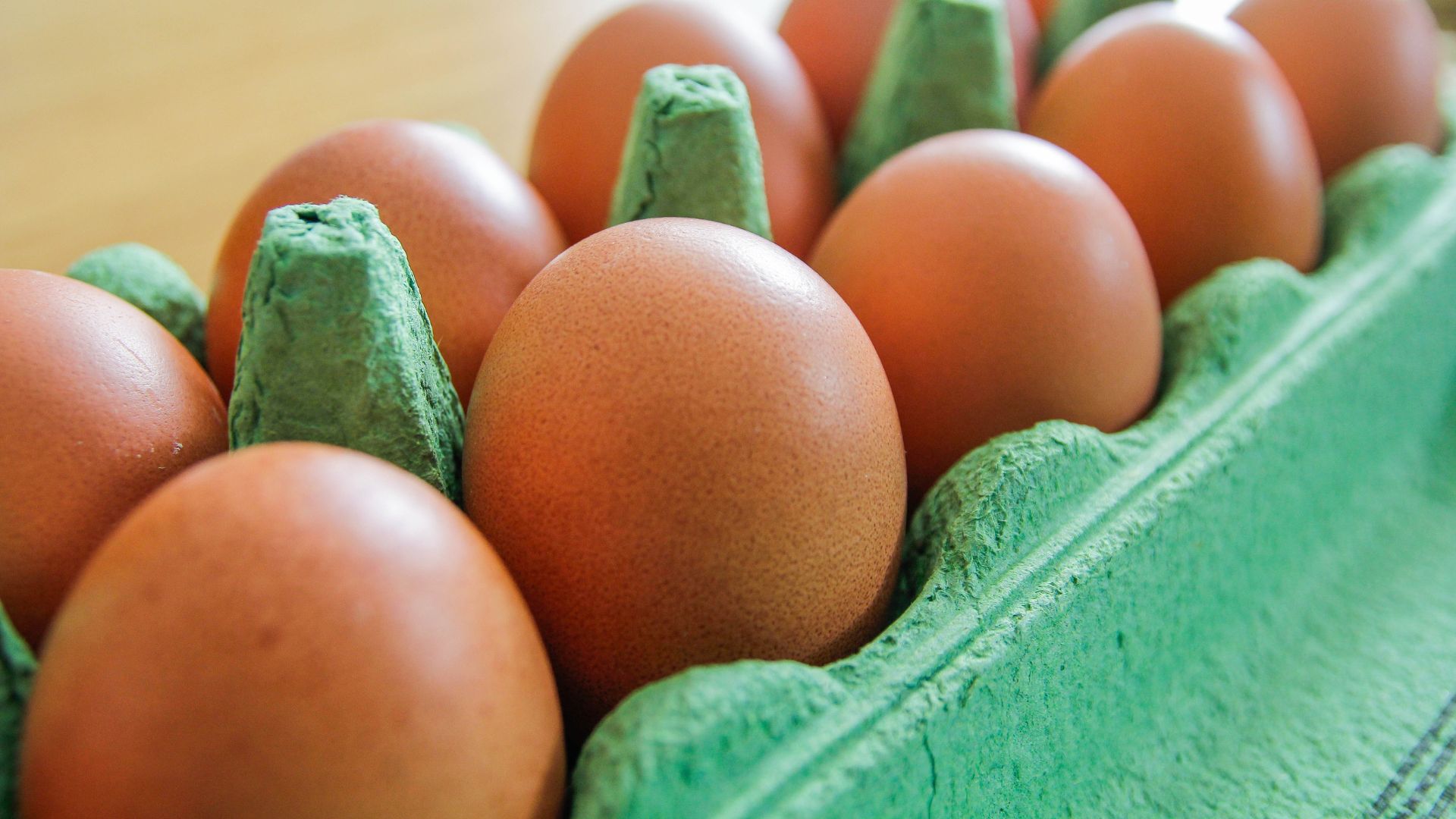
Wonderfully high in protein, eggs are the perfect food to eat post-workout. One egg has 7g of protein, which is essential for muscle growth and repair, along with a range of essential vitamins and minerals. Eggs are also super filling, thanks to the protein, so you'll be able to keep the hunger cravings that often come with intense exercise at bay.
2. Wholegrain bread
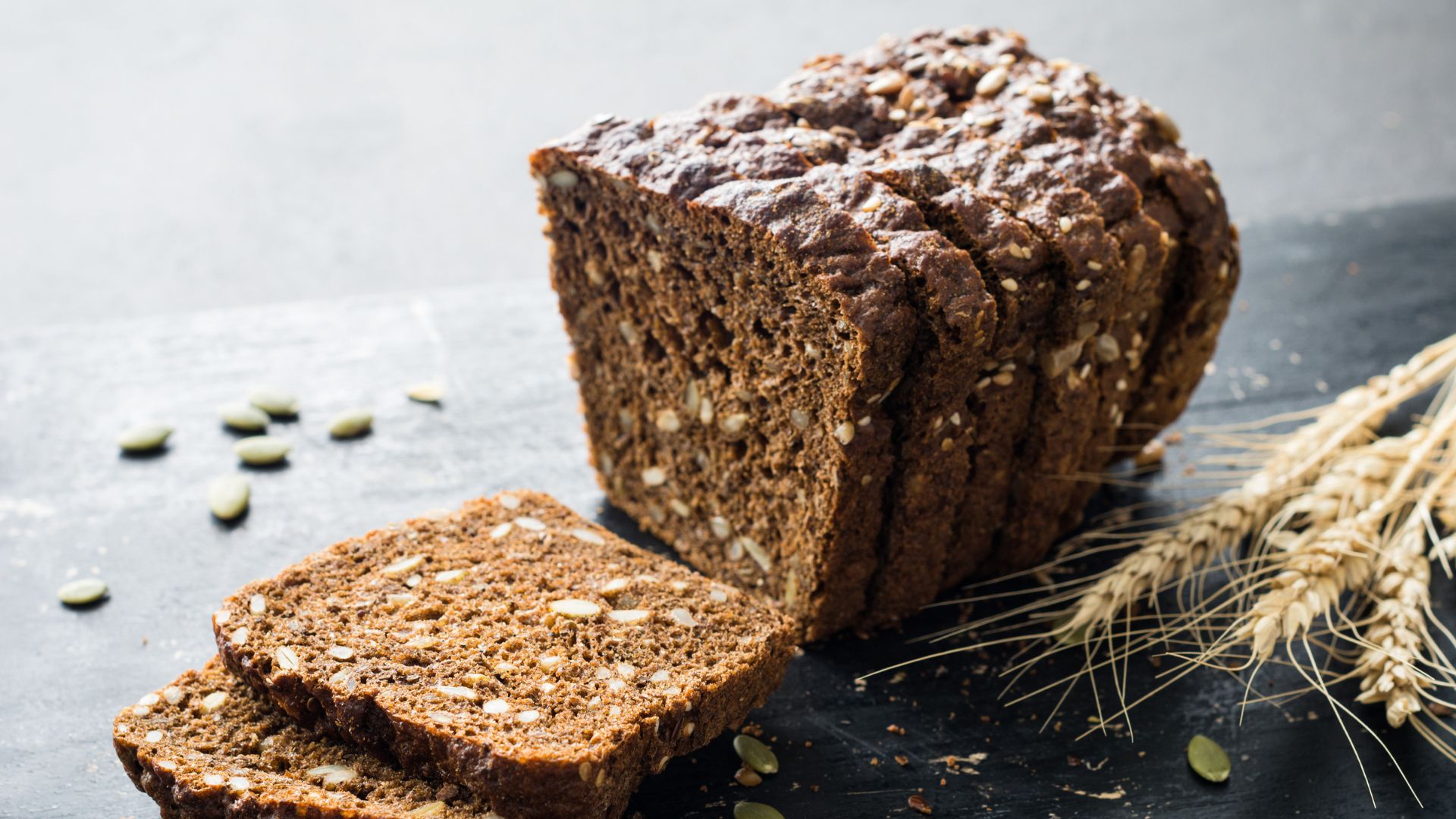
It's also very important to replenish your carbohydrate stores after a workout. Carbohydrates are the first source of energy the body burns during exercise, so topping up on these after your session is essential to stop you feeling tired after your session. Wholegrain bread contains an estimated 41g of carbohydrate per 100g, with 14g of protein.
Wholegrain bread with additional nuts and seeds is an even better option as these will be packed with even more protein and fibre, another filling macronutrient.
3. Spinach
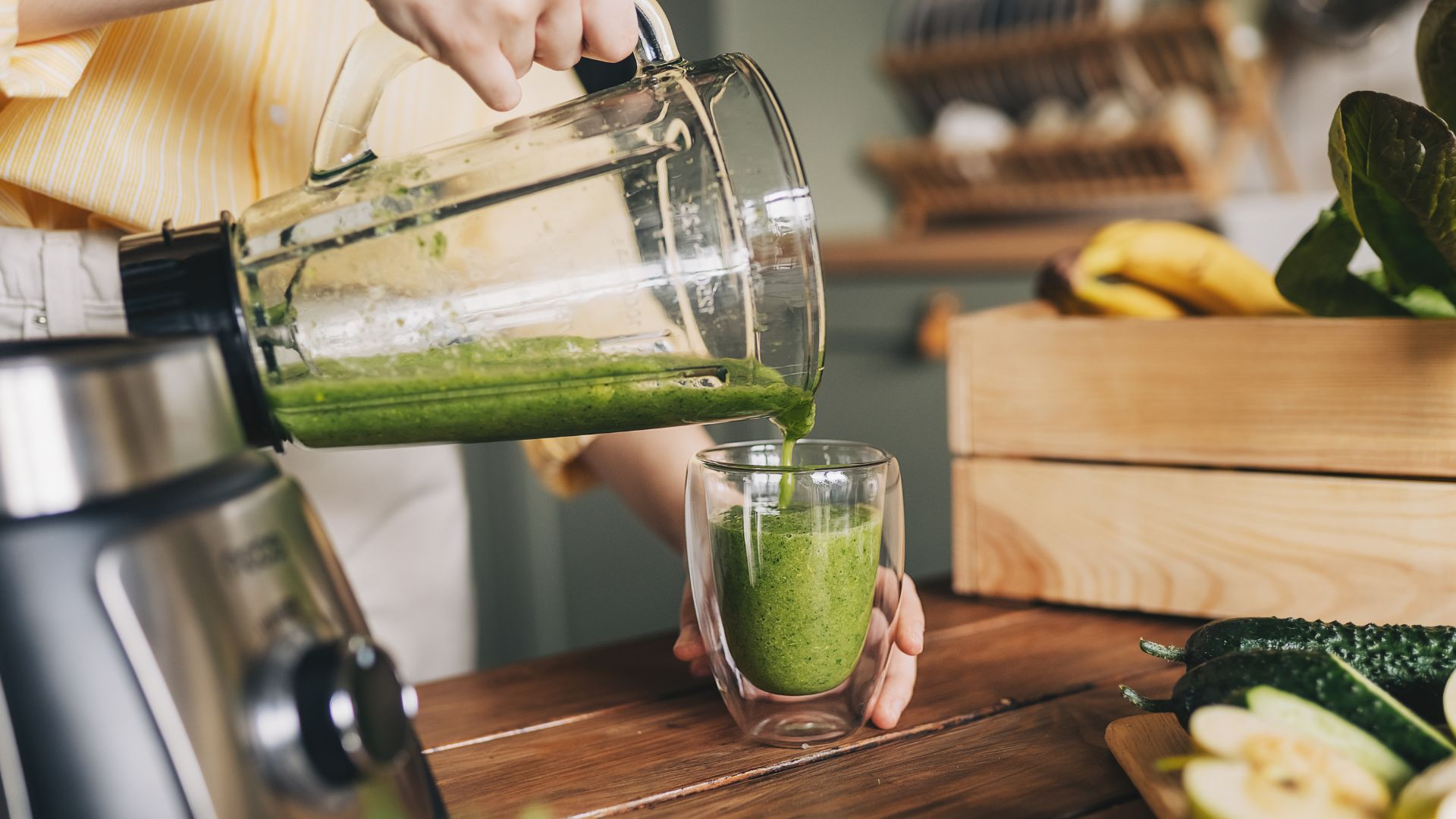
Spinach is rich in magnesium and potassium, essential minerals called electrolytes that help the body function. As you sweat, you lose these all-important electrolytes, along with water, so it's essential to replenish these when your workout is over.
This leafy green also contains vitamins A, C, and K1, and minerals like iron and calcium. However, spinach is best raw rather than cooked as it can lose some nutrients in the pan.
4. Ricotta
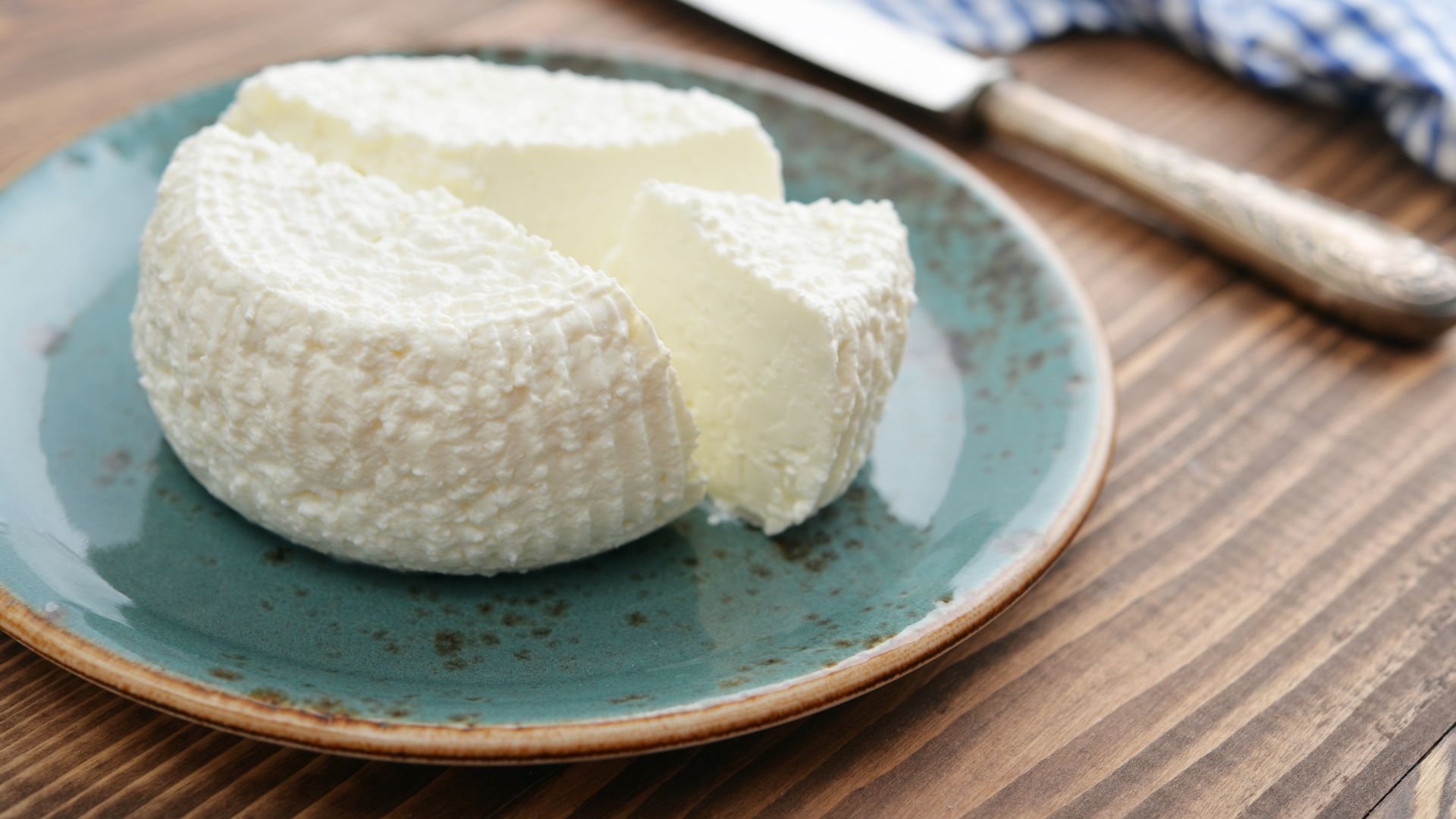
Ricotta isn't just a great cheese to top your salads. It's another high-quality, protein-rich food with about 14g per serving.
Interestingly, as ricotta is made from cow's milk, it's a good source of whey protein in particular. Whey protein is uniquely rich in an amino acid called leucine. Per research by McMaster University, leucine is a "trigger" for muscle synthesis, making it easier to grow and maintain muscle in combination with exercise.
5. Salmon
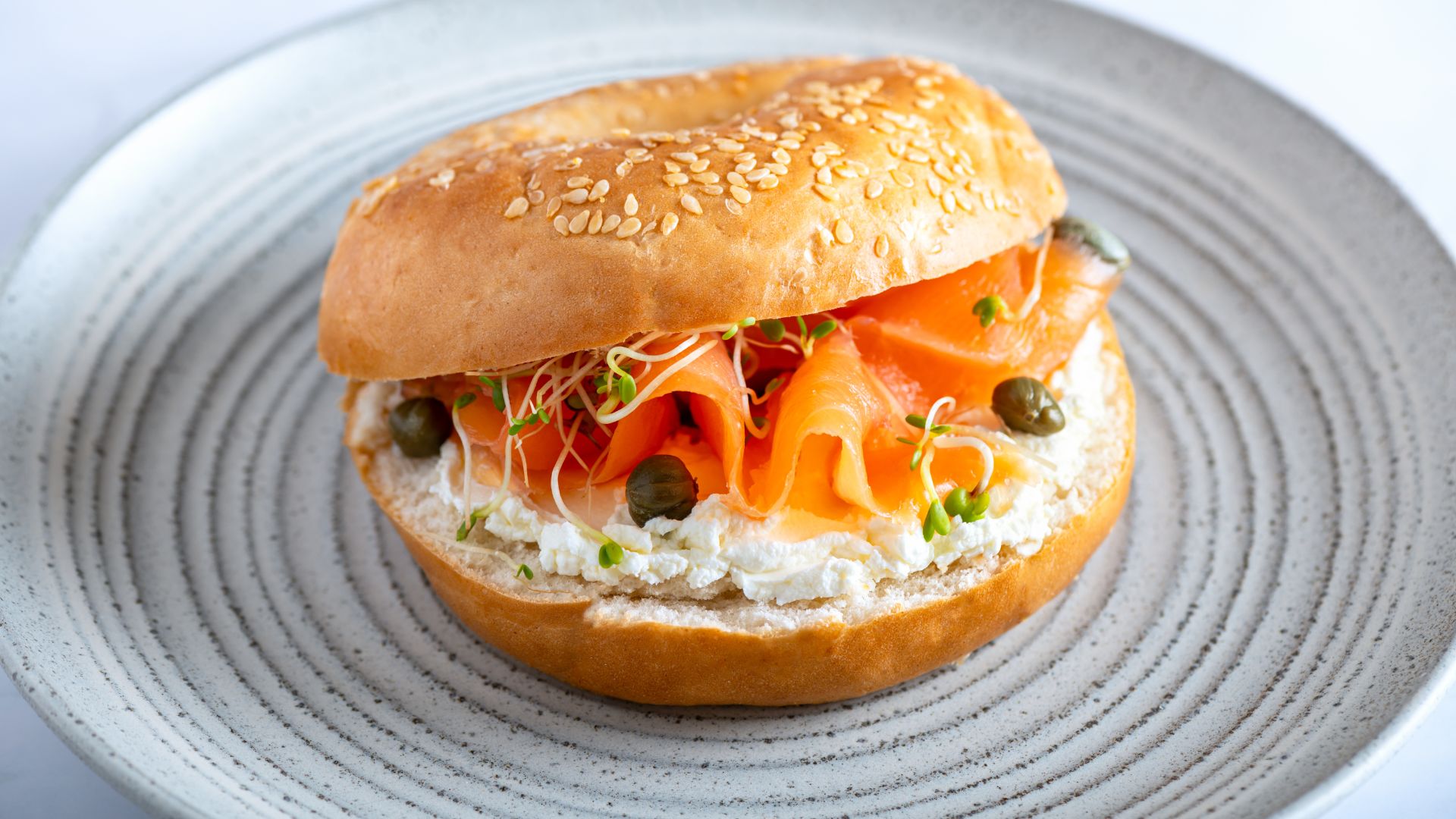
As a type of fish, salmon is naturally high in protein so it can help muscles to grow and repair after a workout. Salmon is also very high in omega-3s and research by the University of Westminster suggests that these healthy fats, once in the muscle cells, can help reduce inflammation and damage to the muscles that may cause conditions like delayed onset muscle soreness (DOMS).
Omega-3s also offer plenty of benefits for the heart and lungs, blood vessels, the immune system, and the hormone (endocrine) system.
6. Turkey
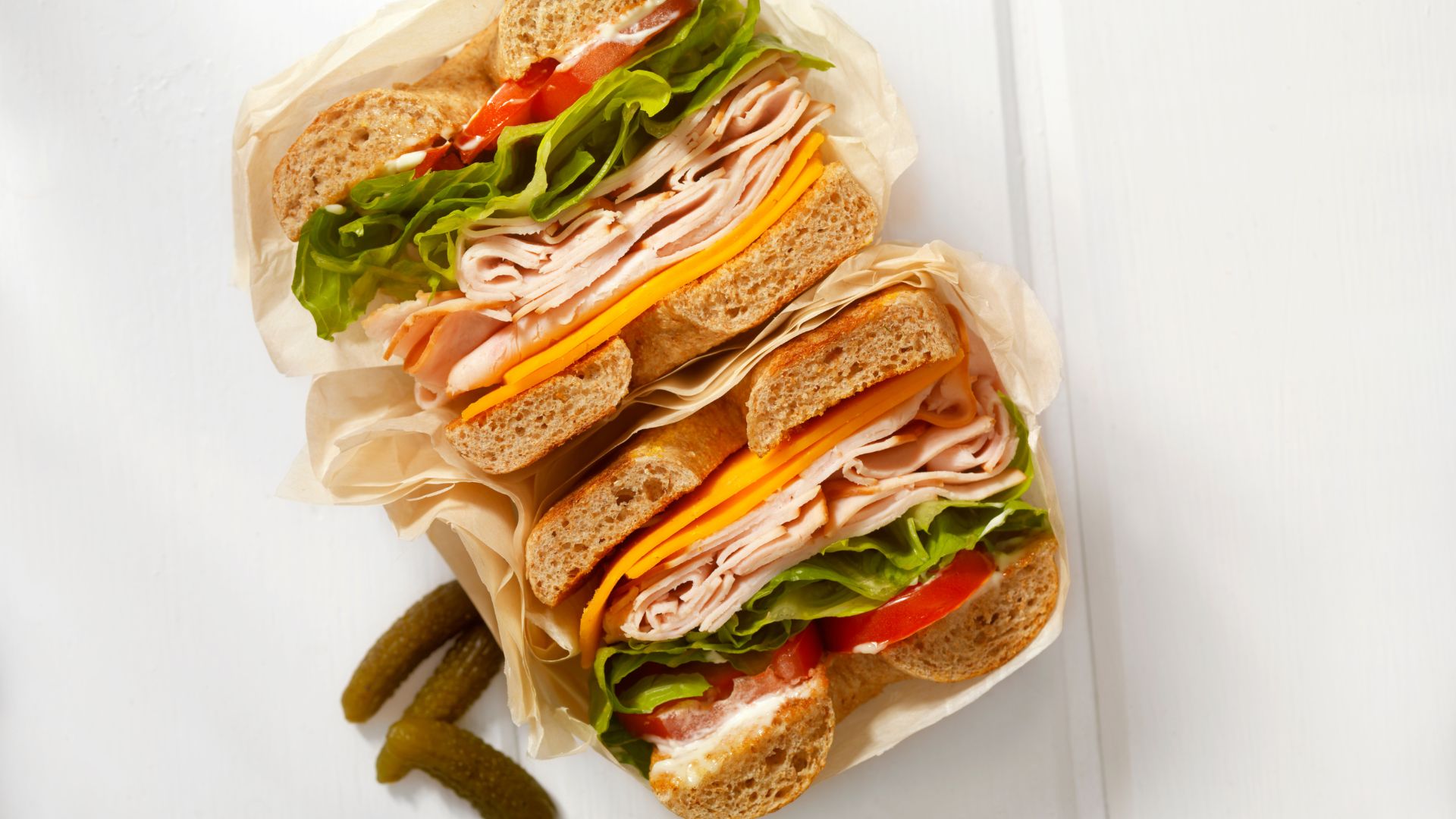
Turkey isn't just for Christmas. Much like ricotta, turkey is rich in whey protein and leucine by default, making it the perfect chicken alternative in a meal or sandwich filling.
This lean meat is also rich in B vitamins, which helps to synthesise other vitamins, and minerals that can offer you plenty of benefits after a heavy exercise session.
7. Sweet potato
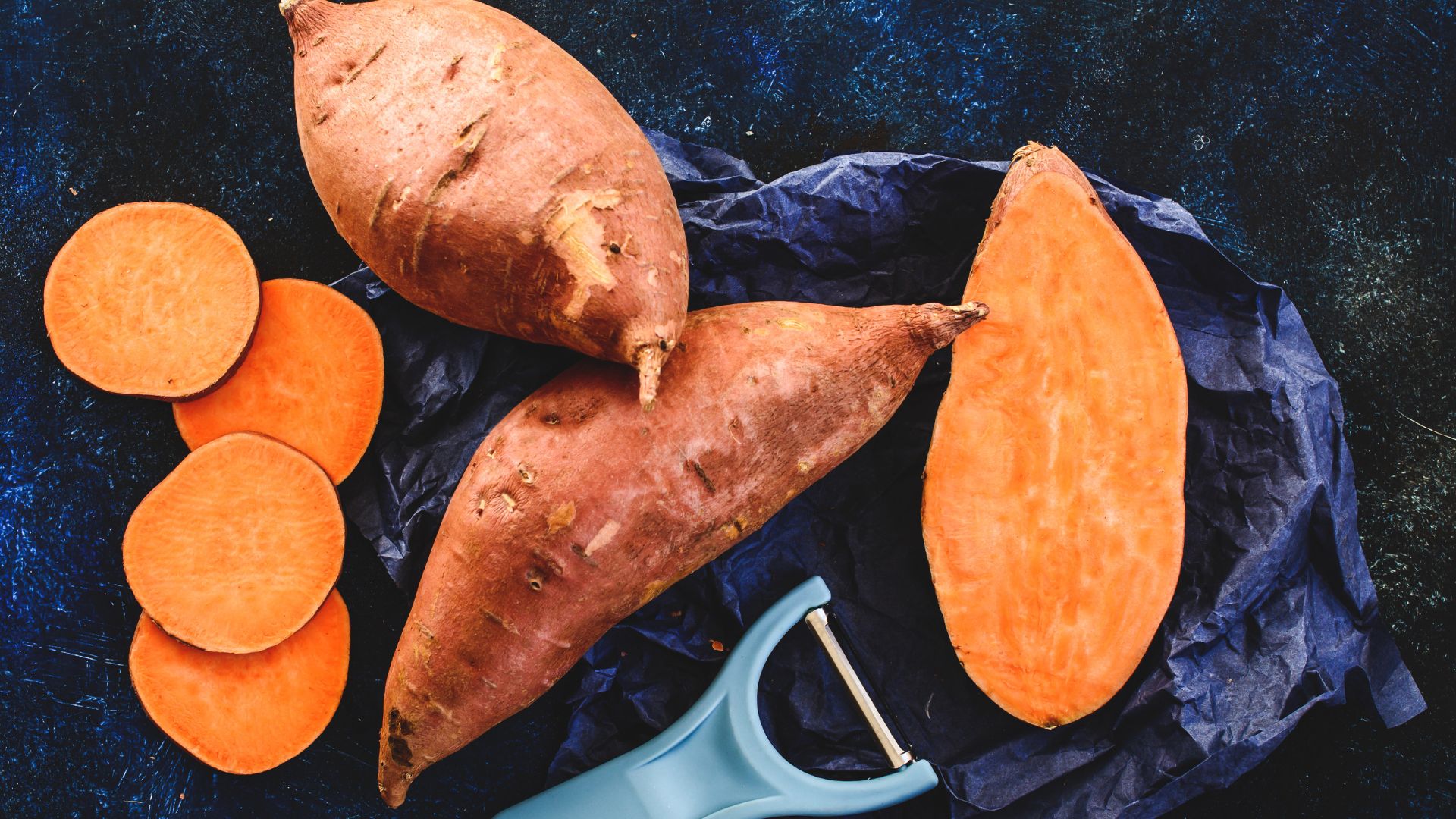
If you've watched Netflix's Live to 100: Secrets of the Blue Zone, you'll know that including these root vegetables in your daily diet can contribute positively to your health. However, along with being a great source of complex carbohydrates with a low glycemic load, sweet potatoes contain copper.
Copper is a valuable mineral for anyone who's been stressing their muscles in a heavy strength training or cardio workout as it can help boost your energy levels and protect the skeleton, cardiovascular system and nervous system.
8. Watermelon
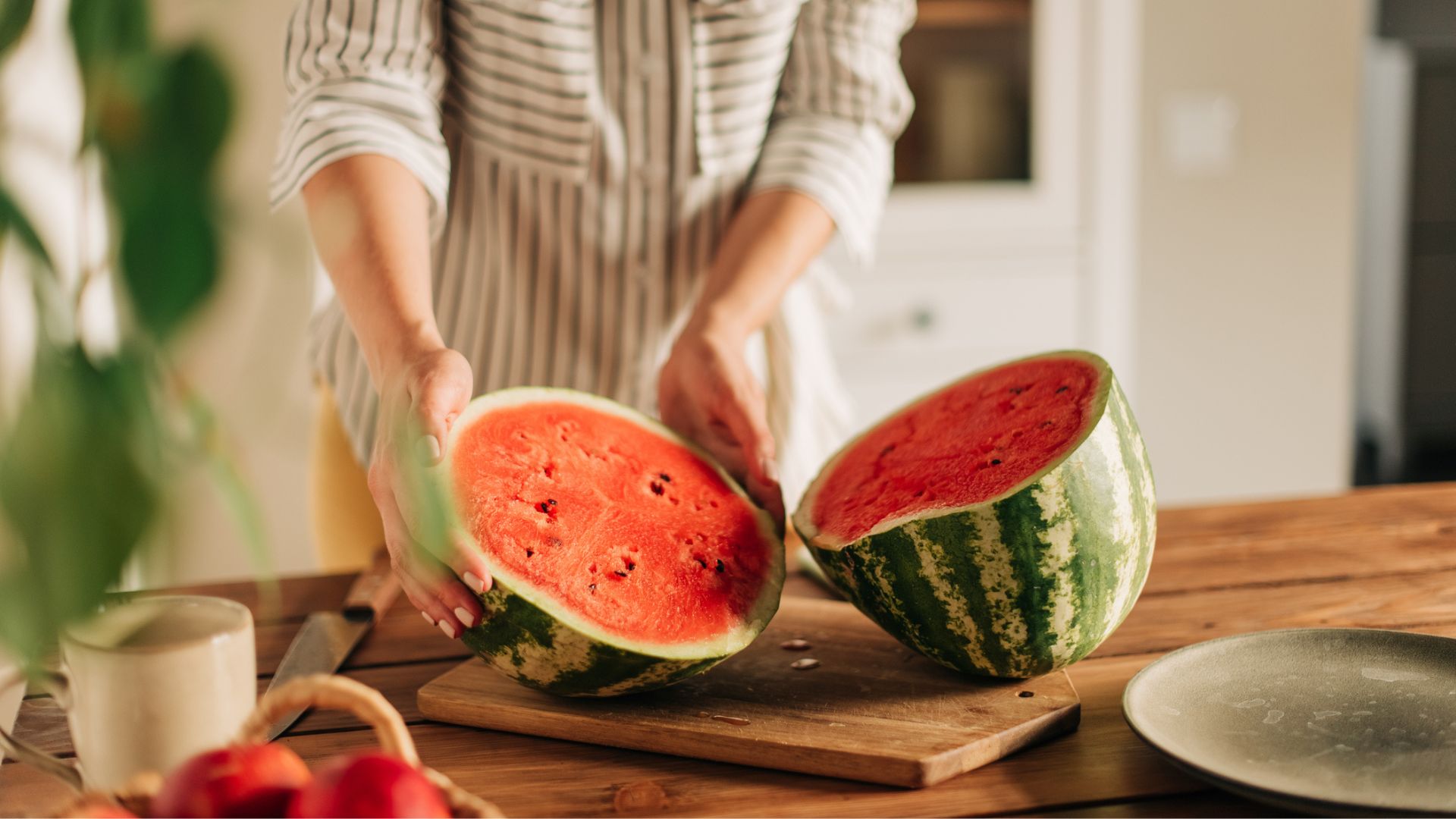
Watermelon might be over 90% water but it's a very valuable food to include in your post-workout as it also includes decent amounts of vitamin C and A, and electrolytes like potassium and magnesium. Also, thanks to the high water content, it's a valuable source of rehydration.
9. Nuts
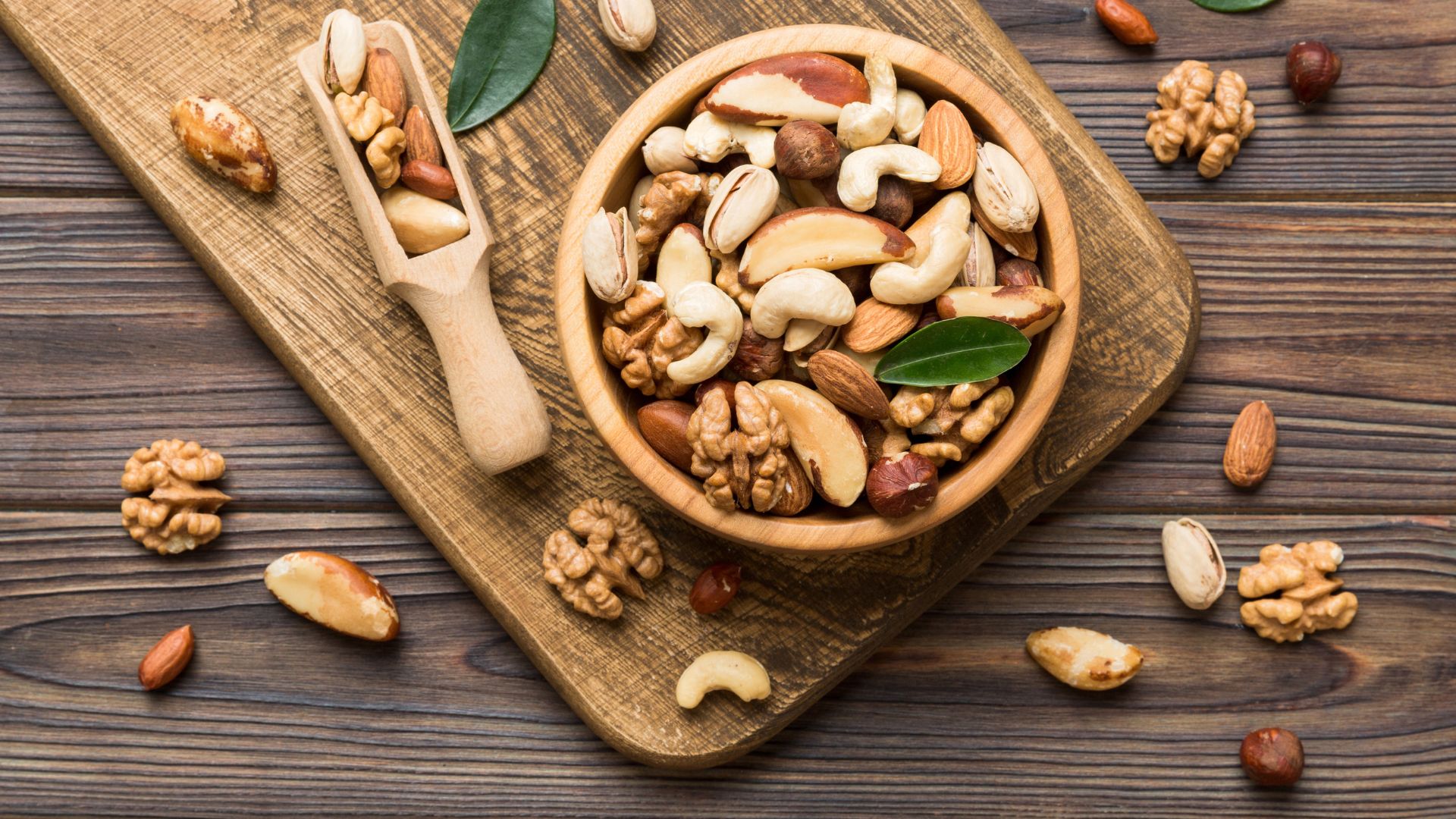
As well as being high in protein, many nuts are also rich in omega-3 fatty acids, making them a great addition to any post-workout meal or smoothie.
When choosing your nut, choose wisely. Raw nuts are always better than those roasted or honey-coated and walnuts, almonds, pecans, and hazelnuts should be the pick of the bunch to make the most of these benefits.
10. Bananas
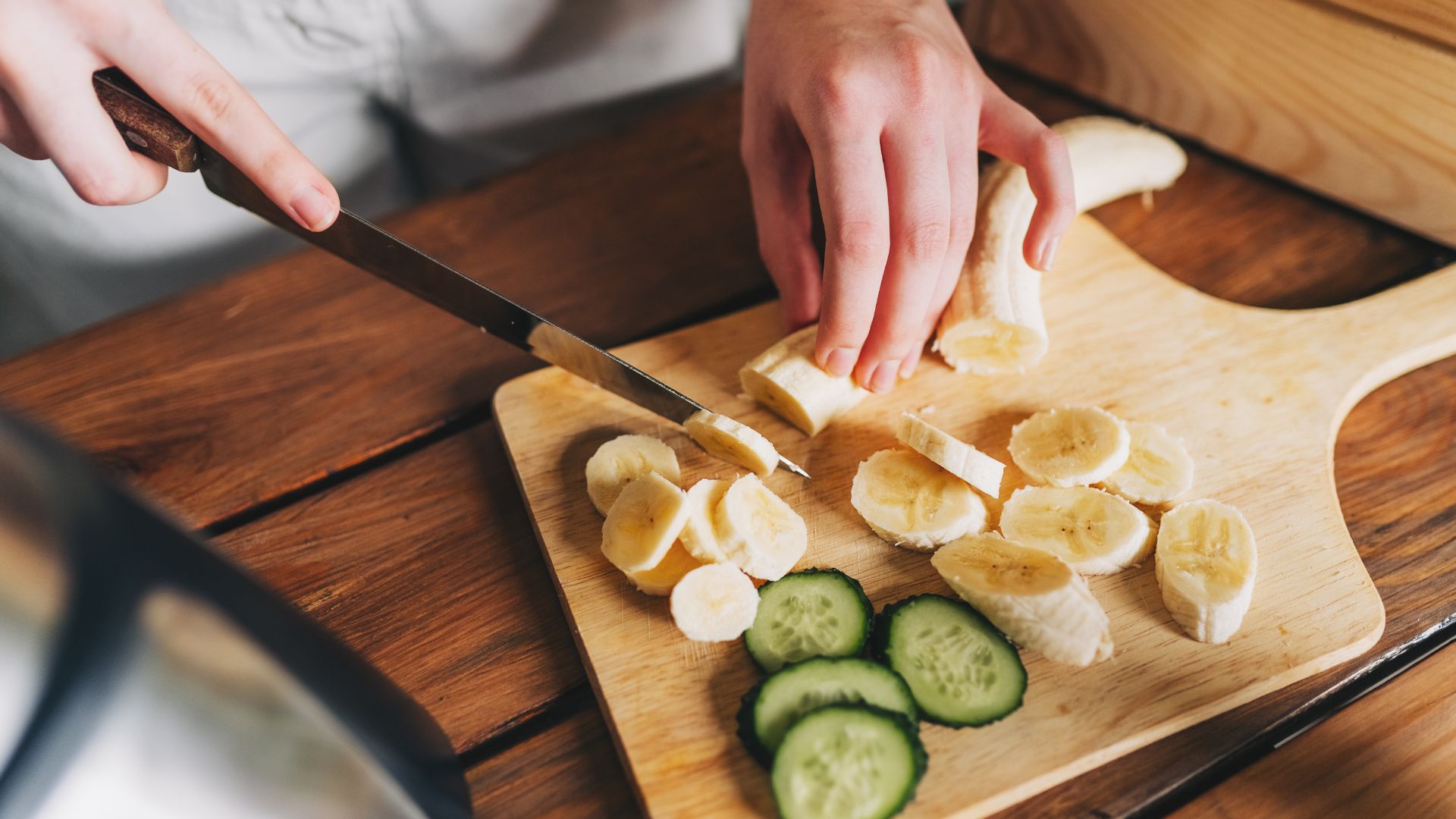
Bananas are one of the very best foods to eat after a workout. They are naturally high in carbohydrates, helping to both fuel and replenish the body's energy levels, as well as being a great source of vitamin C, B6, fibre, magnesium and potassium.
Potassium is a particularly good mineral to help deal with any muscle soreness. Per Harvard School of Public Health, potassium helps the muscles to contract and healthy muscle contraction post-exercise is essential for dealing with soreness and cramps, and even DOMS.
11. Full-fat yogurt
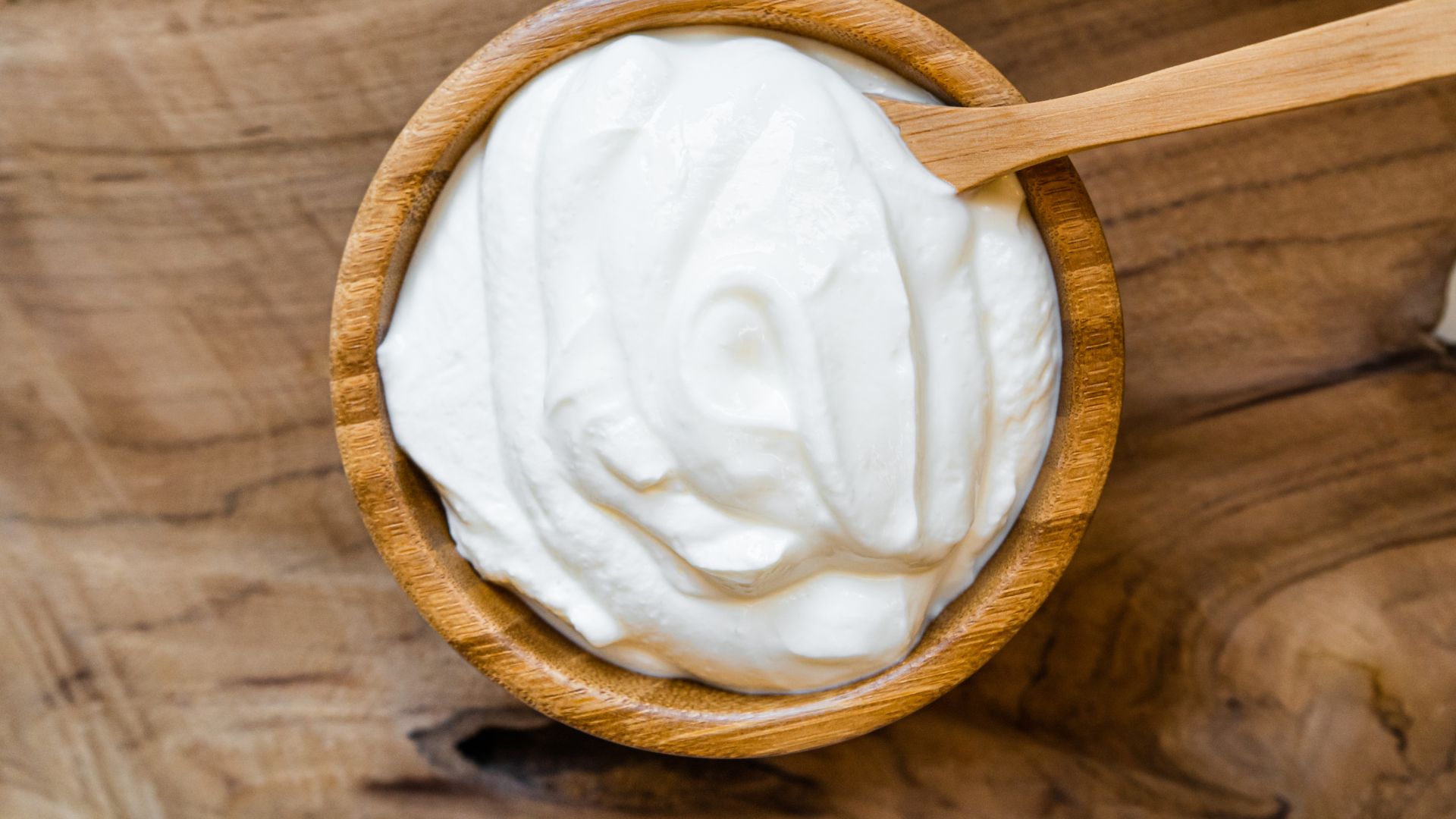
Full-fat yoghurt is one of the best dairy products to have in your fridge. It's high in protein naturally and it blends well with protein powder too, making for a super creamy, dessert-like snack post-workout.
Dairy products like this are also high in healthy fats. These get a bad name in some circles but they are essential for many reasons, including helping us stay full after exercise.
12. Quinoa
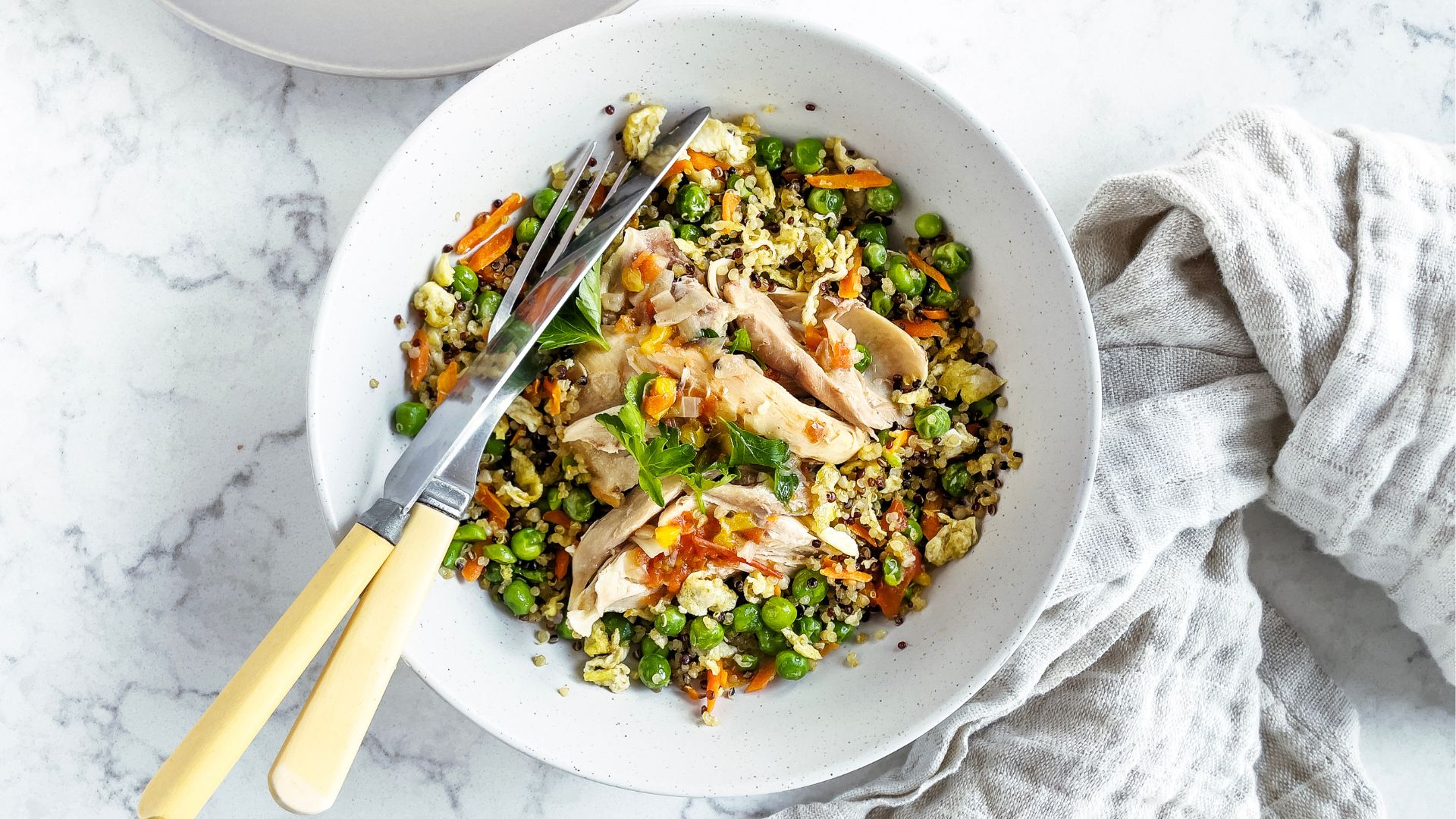
Quinoa is another great carbohydrate to add to your meals after a heavy exercise session. Not only will it replenish those stores lost but as this wholegrain contains all nine amino acids, it's a particularly good-quality source of protein as well.
Best served in salads and as an alternative to heavy carbohydrates like pasta. You can also make porridge from quinoa if you prefer an early-morning gym session.
13. Chicken

As far as high-protein foods go, it doesn't get much better than chicken. This lean meat is similar to turkey in taste and texture but offers up to an impressive 31g of protein per 100g.
The part of the chicken you choose makes a difference, however. Breast is best for high-quality protein, followed by thigh, which contains about 28g of protein per 100g.
14. Seeds
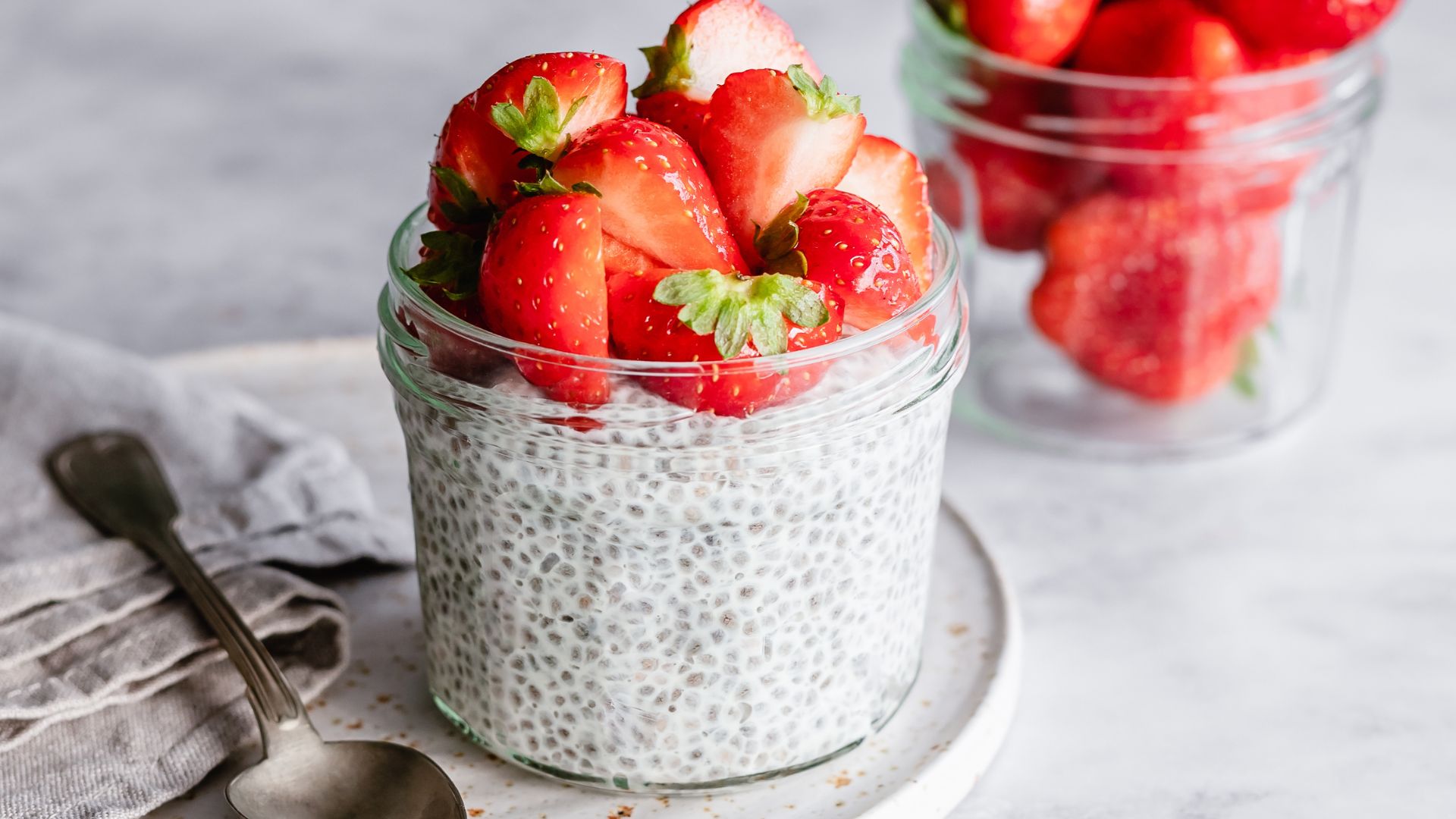
If you looking to finish off your post-workout snack, salad, or smoothie with a little something extra, seeds are a great choice. The classics include chia and pumpkin seeds for protein and fibre, but watermelon seeds and hemp seeds are also excellent choices for a little more flavour and variety.
15. Tinned tuna
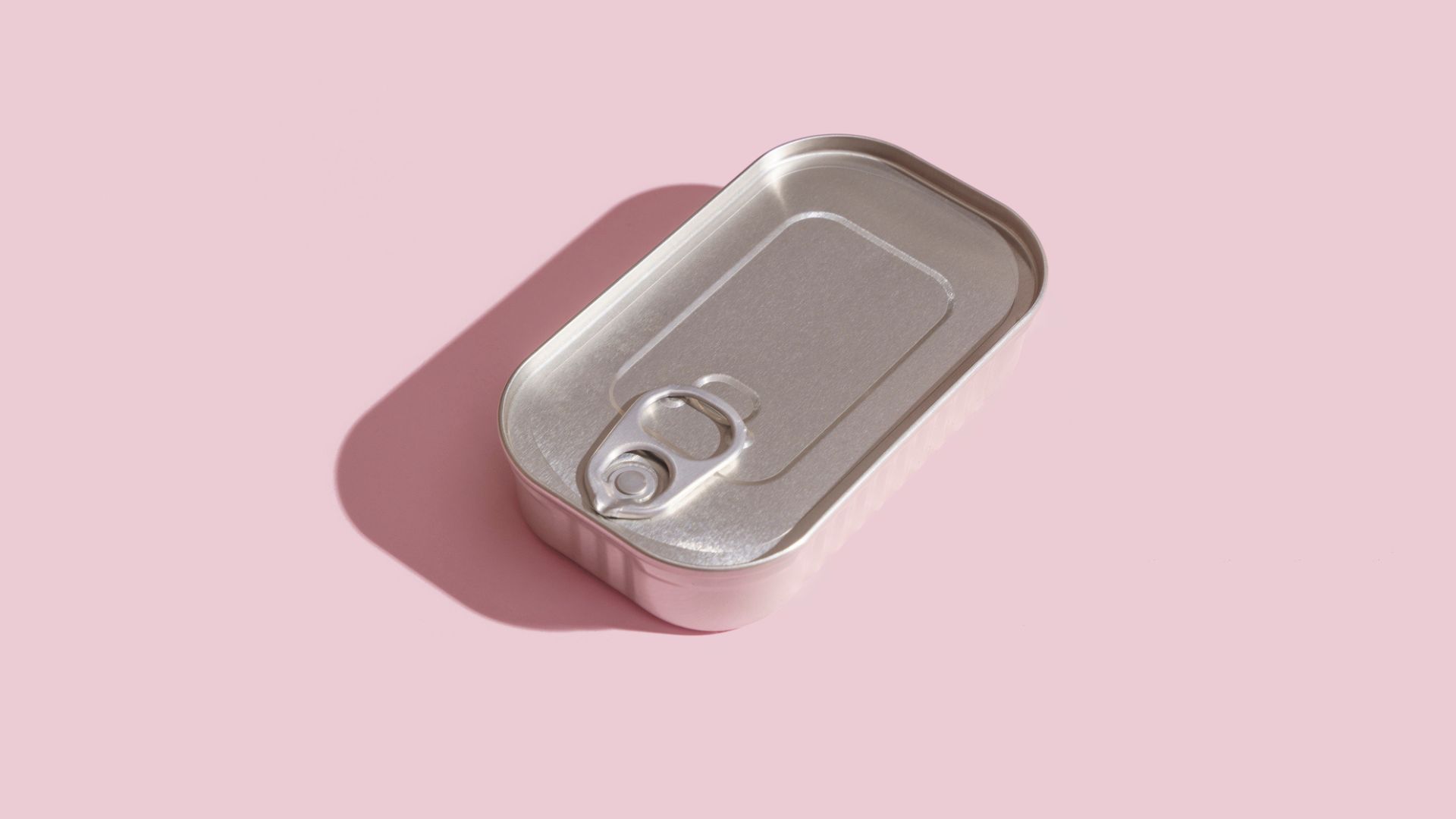
Whether steamed, grilled or baked, tuna is a wonderfully nutritious food full of protein, vitamin Bs, and omega-3 fatty acids. When it comes to eating post-workout, however, most people want something quick and easy.
Hello, tinned tuna. This is one of the best varieties as you can keep a couple of tins in your cupboards, without having to worry about eating them in a certain time frame, and they make for a quick and easy addition to most meals.
16. Rice cakes
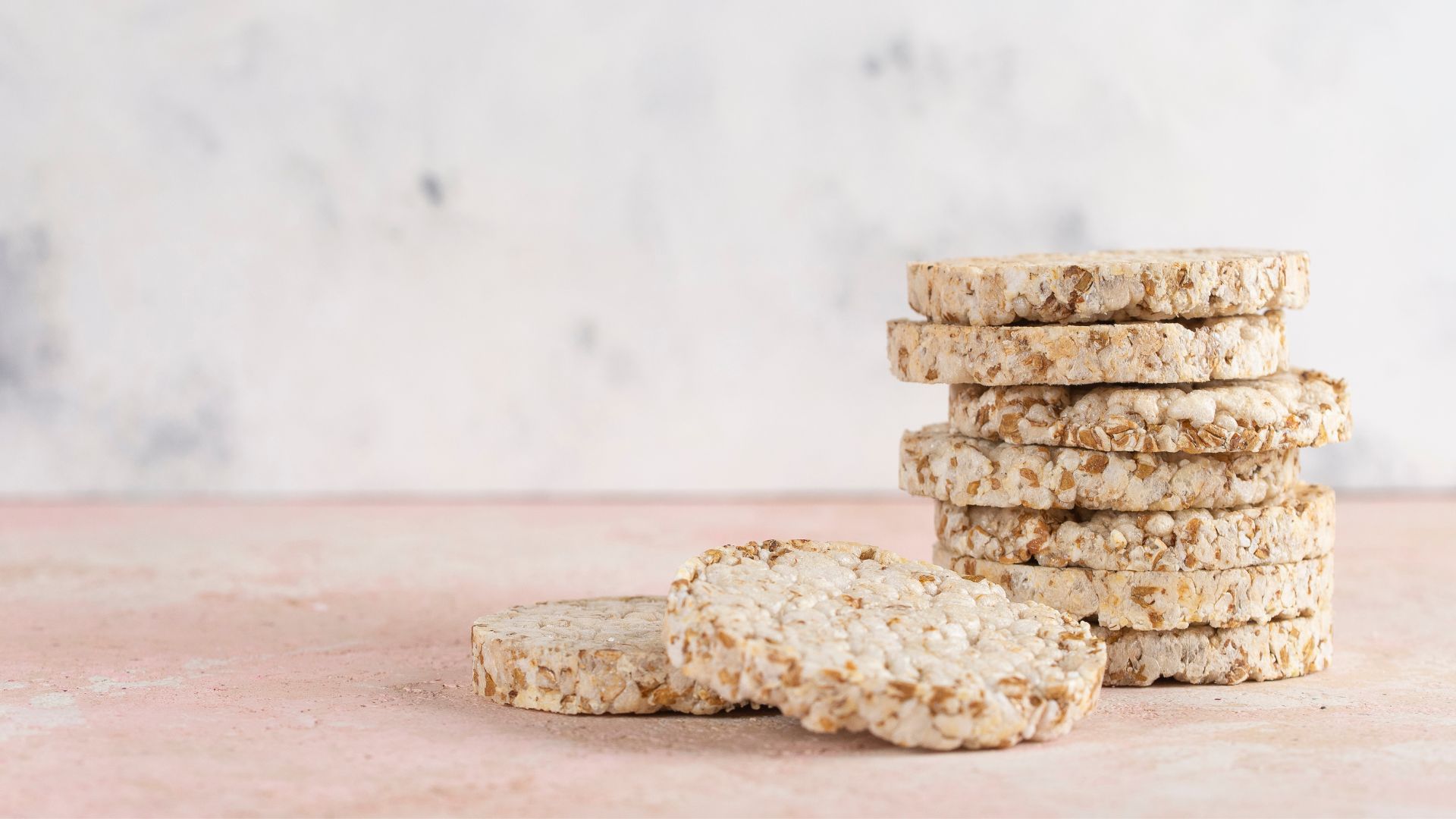
Depending on the type of workout you've been doing, you may not need a high-carbohydrate, calorie-dense snack. If you've just gone for a walk or a quick yoga workout, you may just feel the need for something light.
Rice cakes are a bodybuilding favourite as they are low in fat and calories. Yet, as they are made from rice, which is a complex carbohydrate, they can help keep you full. For a sweet post-workout snack, add peanut butter or honey.
17. Avocado
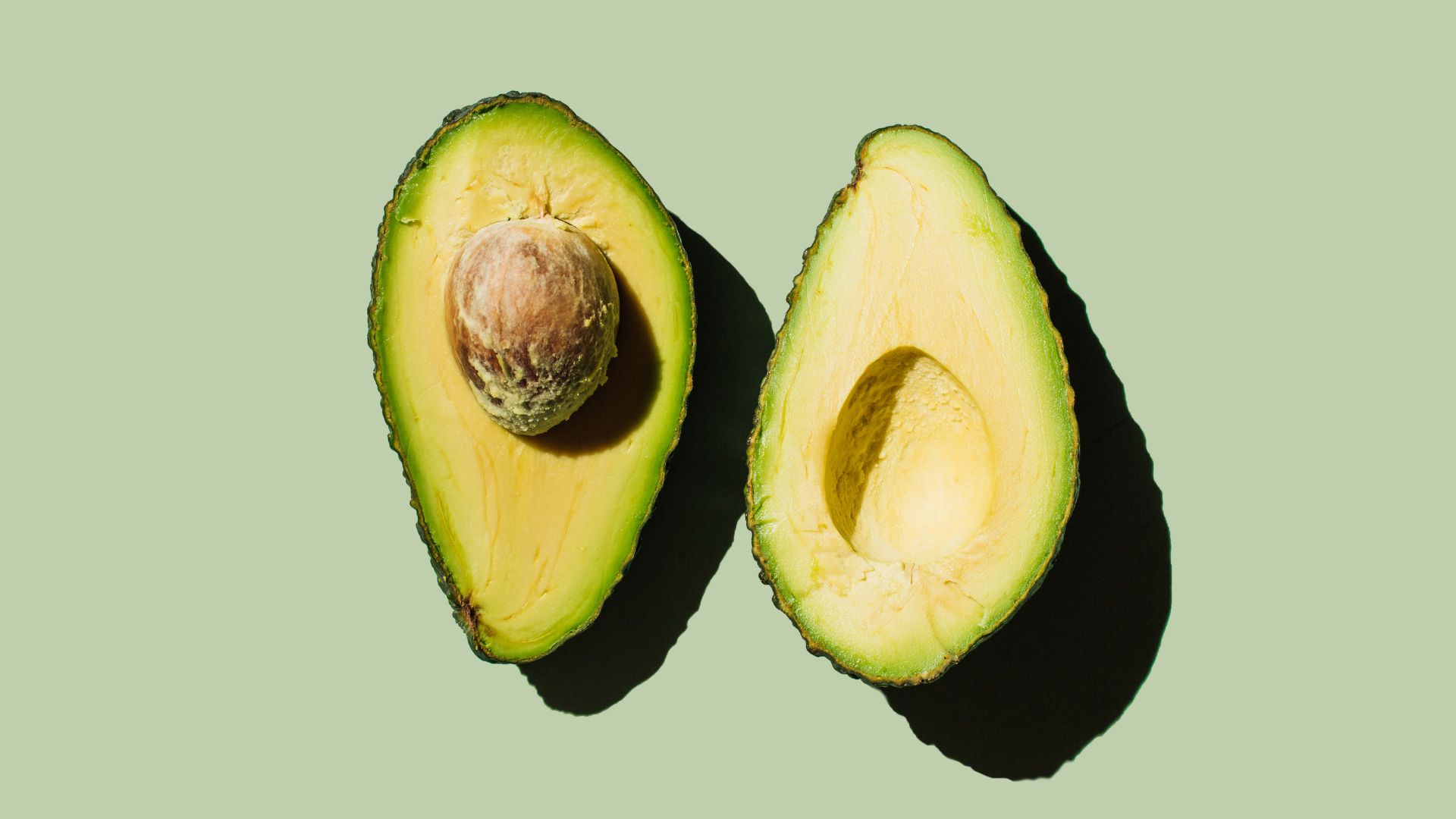
Avocado is more than just a brunch favourite. The smooth fruit is packed with healthy fats to keep you full throughout the day and, per research linked to Baylor College of Medicine, it contains vitamins, minerals, and phytochemicals which can help to reduce any inflammation as a result of a heavy workout session.
As we all know, avocado is best paired with poached eggs, some salmon, and a slice of wholegrain bread. Together, they are a dreamy fibre, protein, and carbohydrate-rich post-workout meal.
18. Nut butter
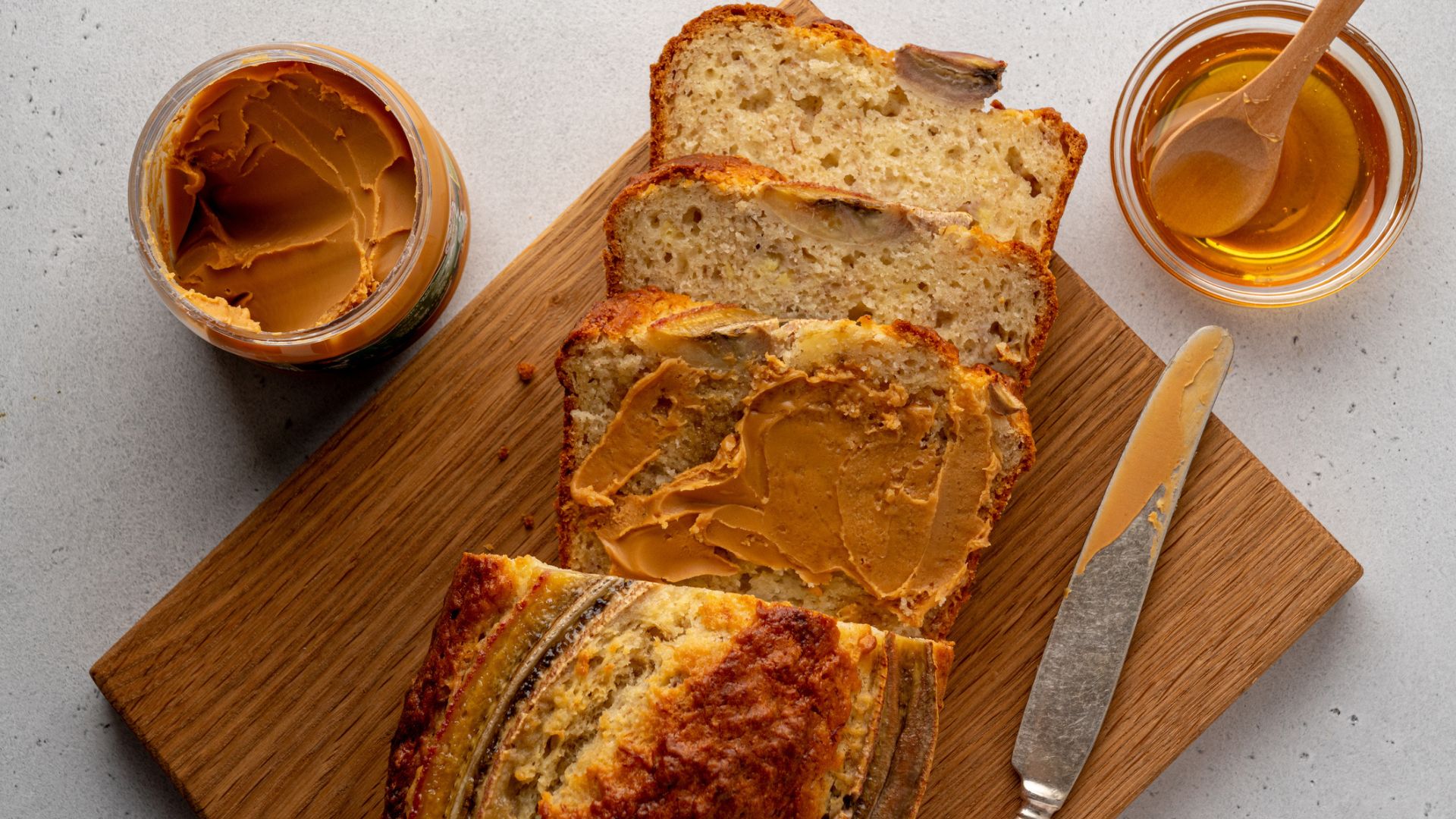
Nut butters are best paired with wholegrain toast or bagels, rice cakes, or used as a sweet addition to a post-workout smoothie. As with many of the best foods to eat after a workout, the benefits do depend on which type of nut butter you buy.
While peanut and almond butter are both excellent choices, it's actually walnut butter that takes the top spot for the healthiest type. Walnut butter is rich in omega-3 fatty acids, which can help reduce inflammation after exercise and even lower so-called 'bad' LDL cholesterol. It's also rich in fibre, another filling nutrient.
19. Oats

Oats are a breakfast essential for a reason. Porridge, overnight oats, and oat-based smoothies are an excellent choice for a post-workout breakfast or snack.
This cereal is the only one of the bunch that contains a protein called avenaline, which contains the healthy balance of amino acids that we need for muscle growth and repair. It's also a complex carbohydrate so the energy is broken down and used by the body slowly, meaning we stay fuller for longer after a bowl of these.
20. Edamame
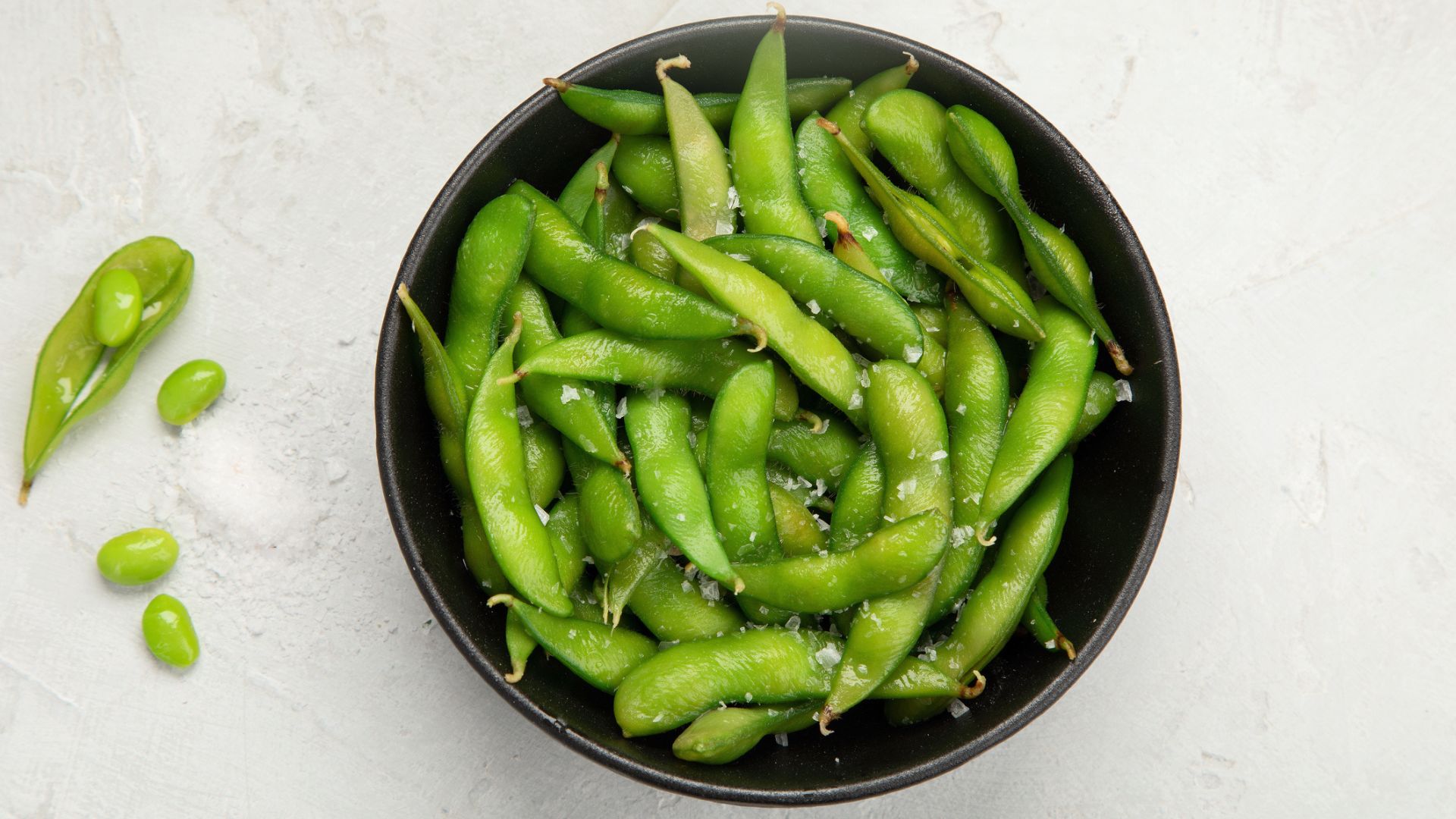
Perfect for grab-and-go snacking, edamame are small green beans in pods. But don't let their looks deceive you - these are one of the best foods to eat after a workout. Edamame beans are high in protein with 11g of protein per 100g and contain a healthy amount of carbohydrates too.
Best served raw and fresh with a dash of rock salt and chilli, roasted or dried.
21. Rice
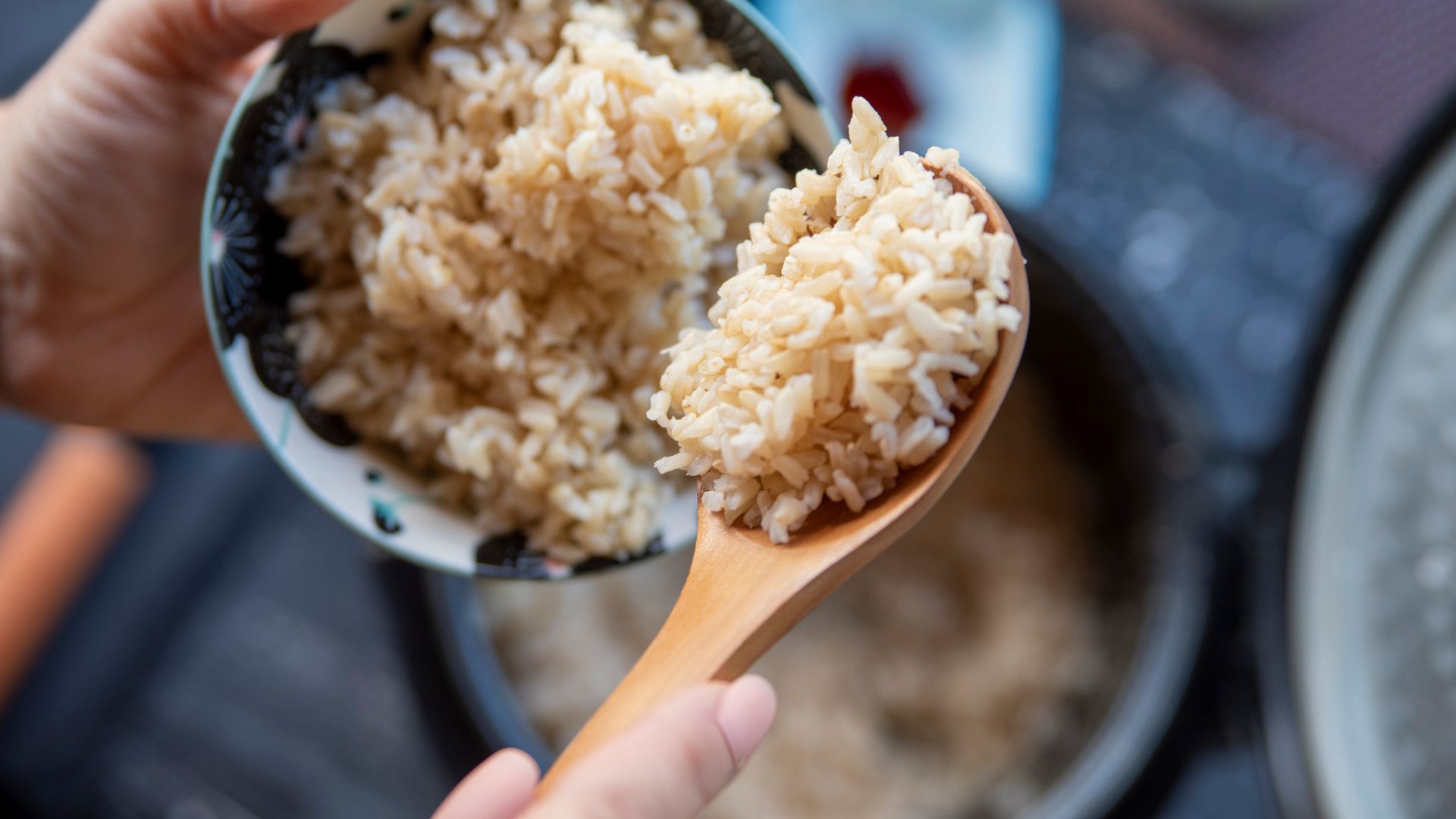
Rice is another natural go-to for a good post-workout carbohydrate. While you might think that brown rice is better than its white counterpart, that's not necessarily the case. While whole grains are hugely beneficial, white rice actually replenishes our glycogen storage quicker.
Glycogen is the energy we store in our muscles for exercise, so if you're working out at least a couple of days a week, a post-workout meal with white rice may be just what you need. Many people also find it a lot easier to digest, which may be more beneficial for those who don't find themselves very hungry after exercise.
22. Dried fruit
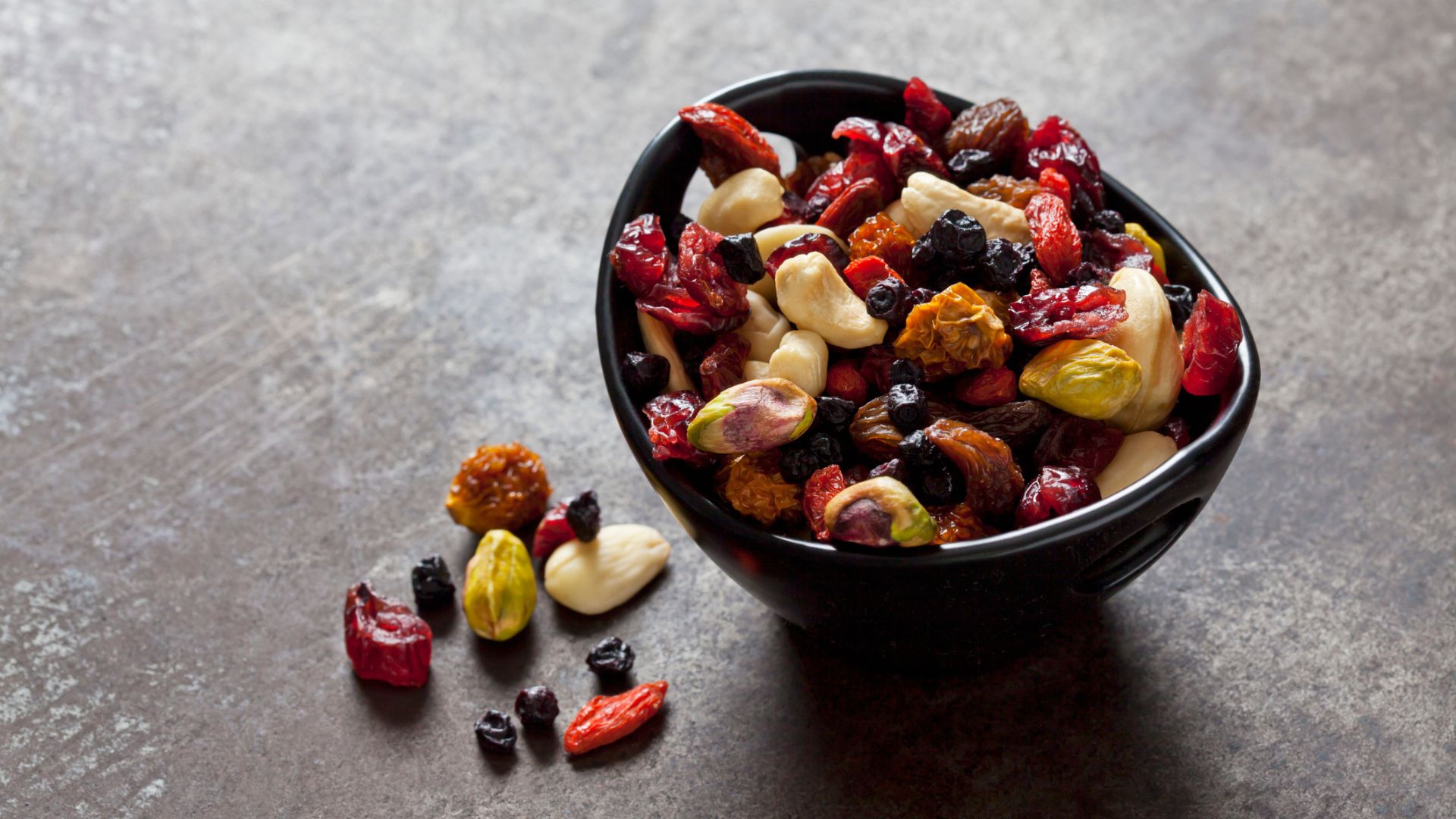
Scatter it over your porridge, blend it up in a smoothie, add it to your salad, or combine it with full-fat yogurt for a healthy dessert, dried fruit is a versatile cupboard essential for grabbing after a workout.
While dried fruit, much like white rice, gets a bad reputation for its sugar content, it's actually more beneficial at replenishing the important glycogen energy source in our bodies. Dried berries, figs, and apricots are among the best.
23. Tofu
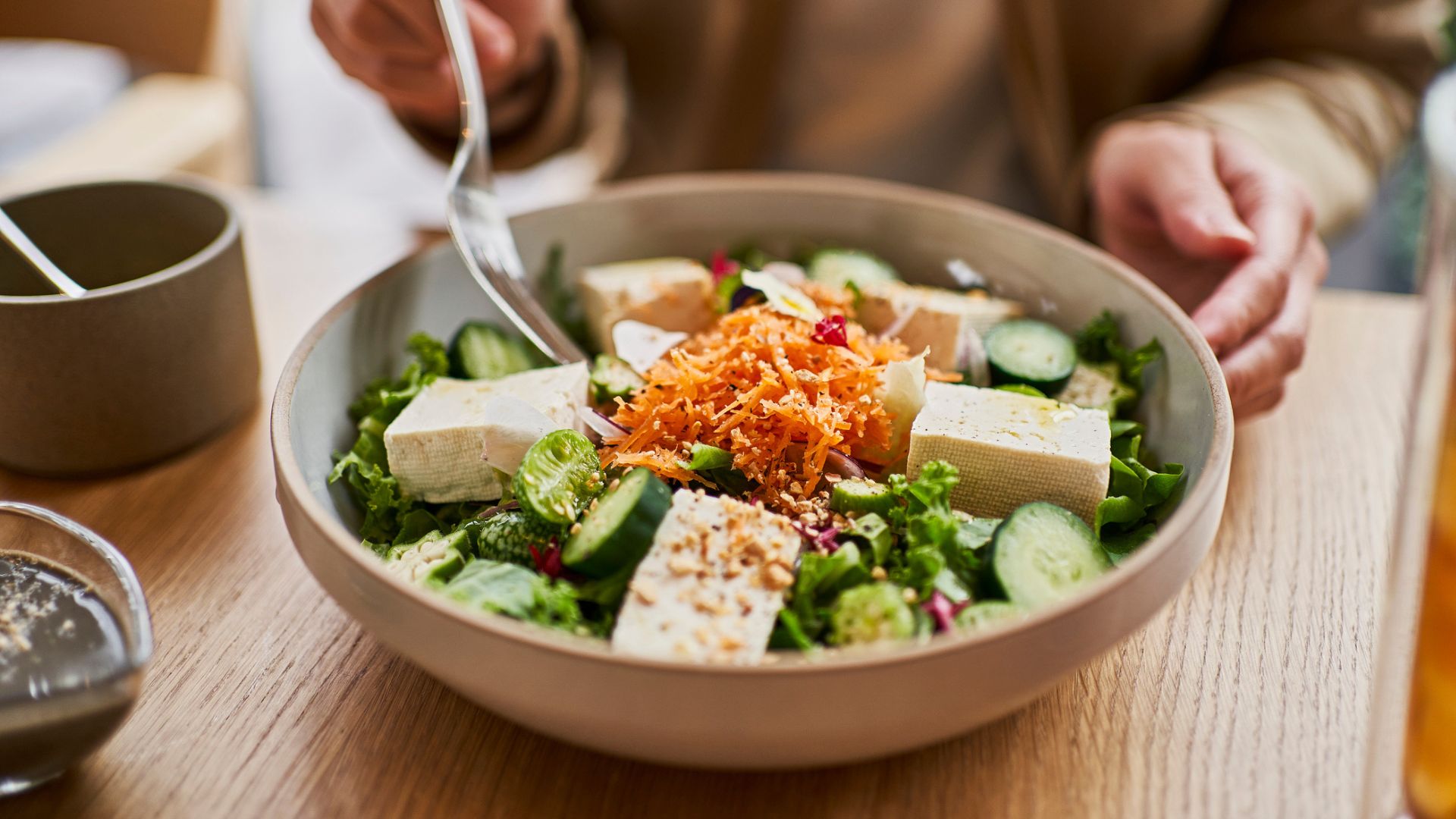
Tofu sits with edamame, tempeh, and soy protein powder as one of the best sources of high-quality vegan protein. Just like any other form of protein, including tofu in your post-workout meals can help you recover quicker and help you see progress in muscle strength faster.
However, as a form of soy protein, tofu is among the most beneficial as it contains all nine amino acids needed for muscle growth and repair, unlike some other foods.
24. Olive oil
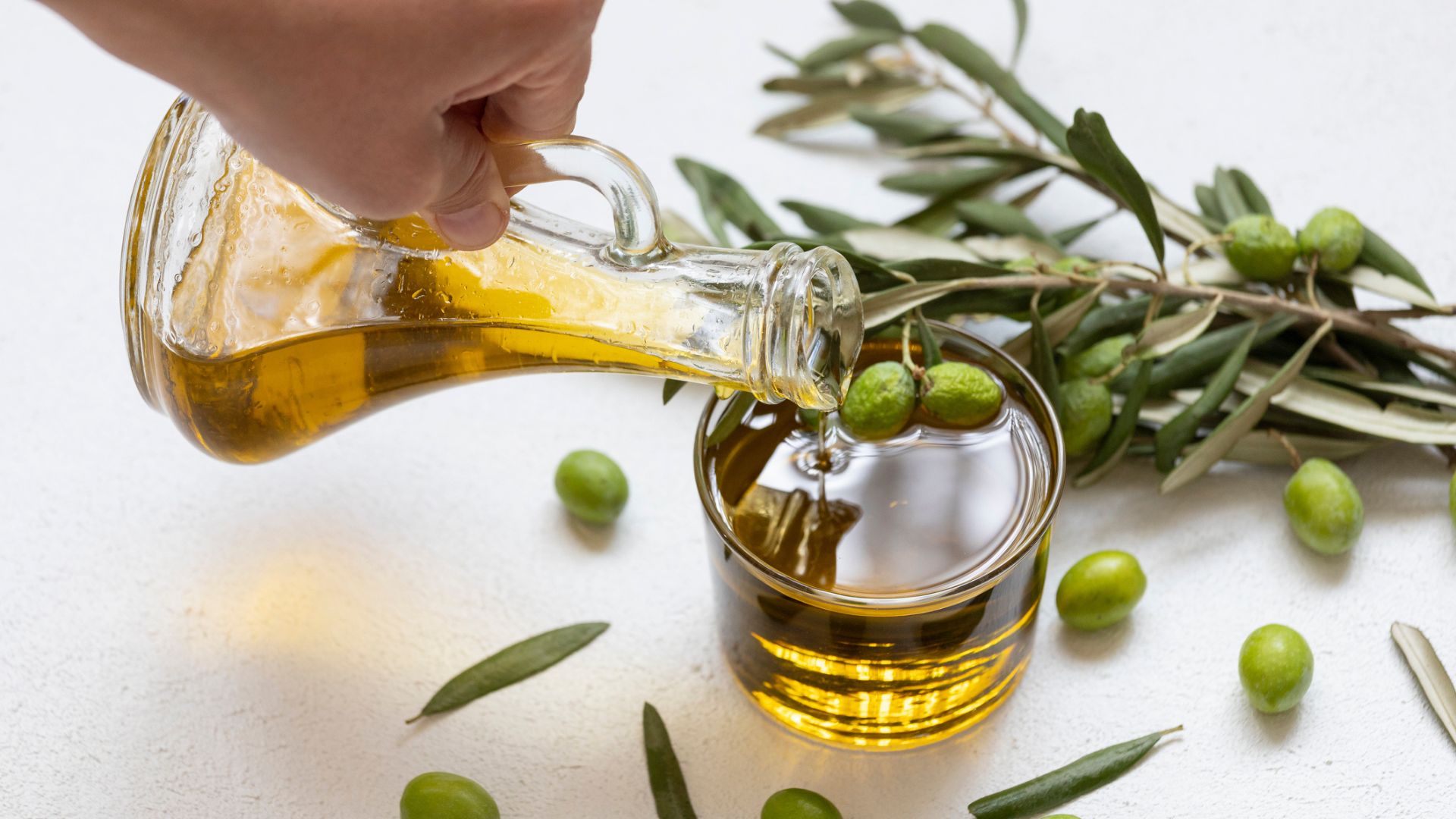
As long as you include fresh olive oil in your diet (and don't use it for frying), it can help level up your meals after a workout with extra healthy fats. Olive oil is rich in healthy fatty acids and one in particular called oleic acid.
Oleic acid can help reduce inflammation after a heavy workout session and help the cells in the body absorb 'good' cholesterol, converting it to testosterone, a hormone essential for everyone to build and maintain muscle.
25. Apple
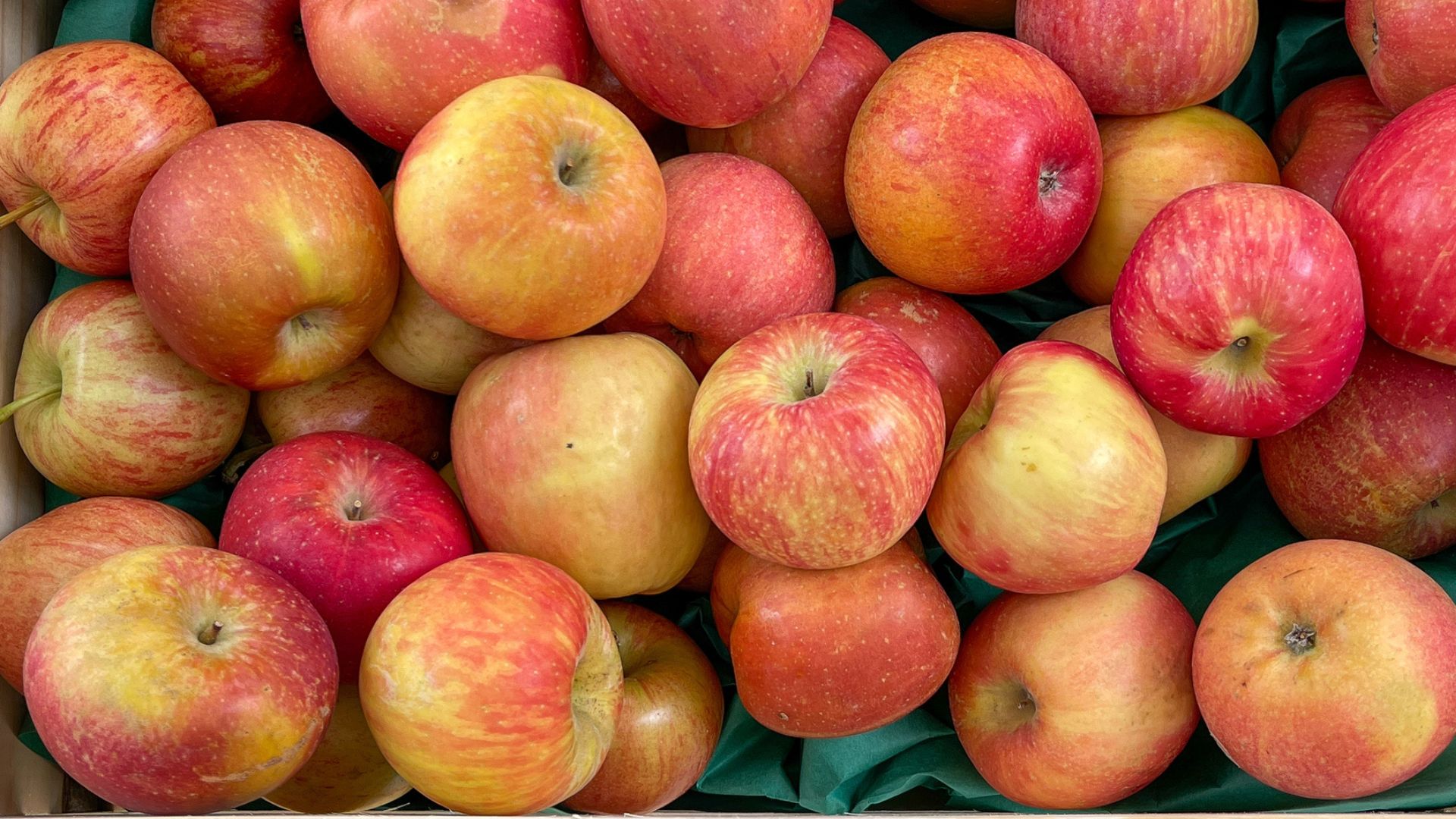
Any fruit will make a good addition to your post-workout meal or offer an easy, on-the-go snacking option, but apples are among the best. They are a high-quality source of complex carbohydrates so they release energy slower and can help us stay fuller for longer, beating that post-exercise hunger craving.
Apples can also help to replenish the lost glycogen storage in the body, which is essential if you're looking to do another workout the next day, and their high antioxidant content can help increase blood flow to the muscles.
26. Kefir
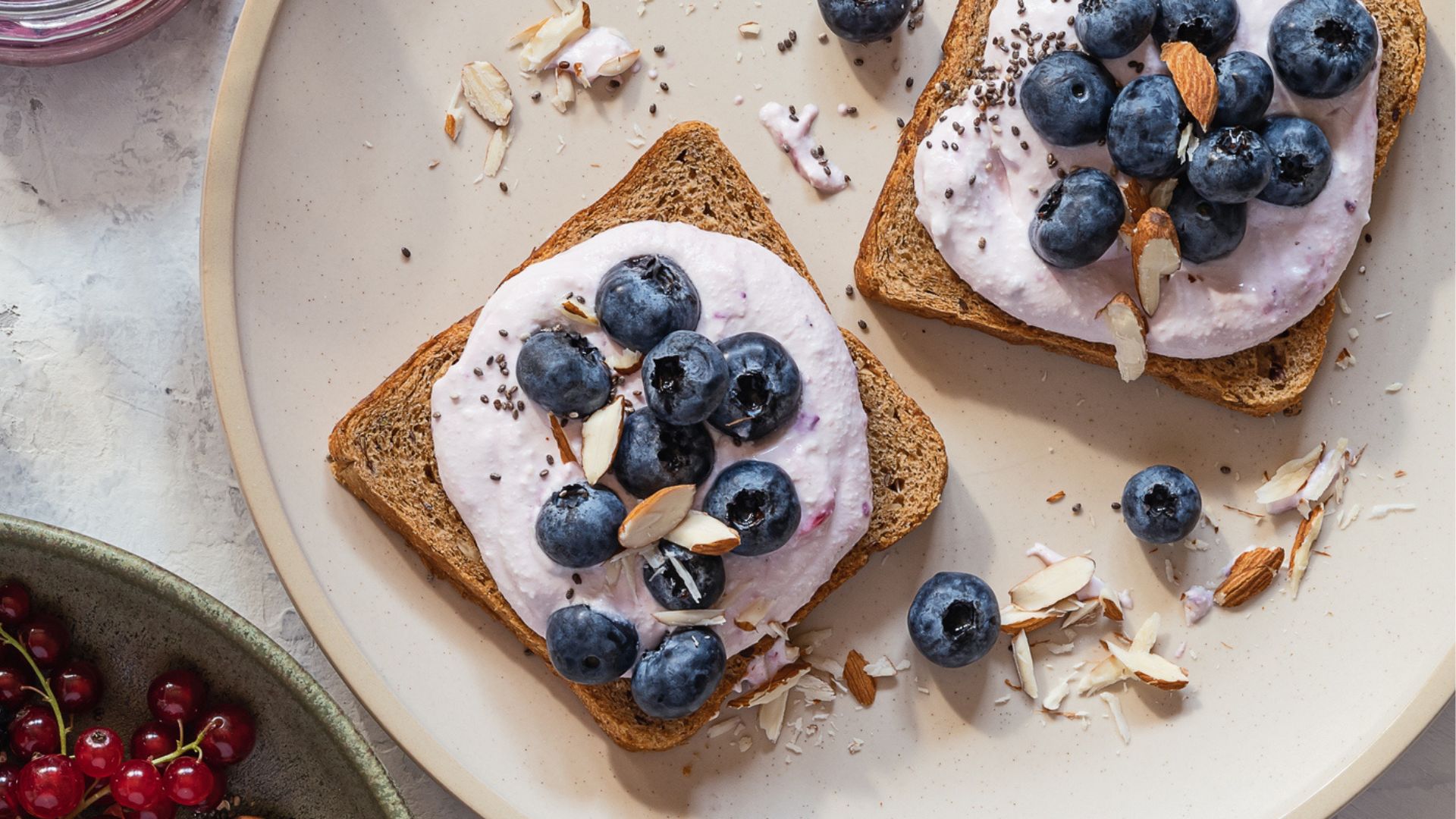
If you do lots of endurance exercise (e.g. running, walking, cycling, and strength training) then adding a spoonful of kefir into your post-workout smoothie could be the way forward. Much like other dairy products, kefir offers a good amount of whey protein, which can help the muscles bounce back faster after exercise.
For those who are lactose intolerant, kefir is a particularly good post-workout food as it doesn't contain lactose. This also means other people, without a lactose allergy, will find it easier to digest.
27. Kale
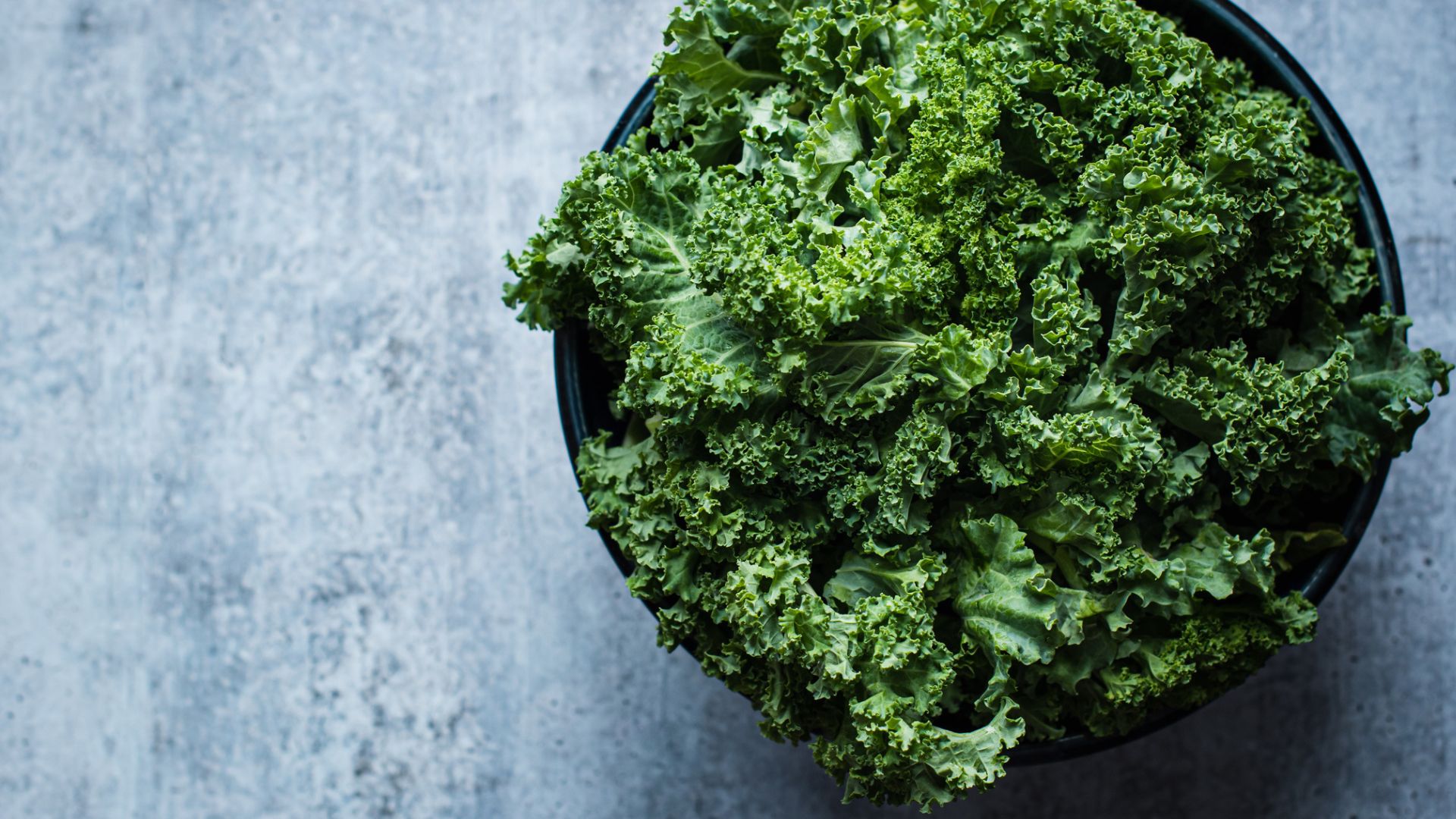
As you're building up your protein-rich post-workout salad with chicken and seeds, don't forget about the leafy greens - and kale in particular. While it's not particularly high in protein or carbohydrates, it does offer an impressive amount of Vitamin C. This is an antioxidant, which means it can also help reduce inflammation and aid the repair of muscles post-workout.
It's also rich in fibre, which can help keep you full in the hours after exercise and prevent you from wanting to snack on carbohydrate and sugar-heavy foods.
28. Prawns
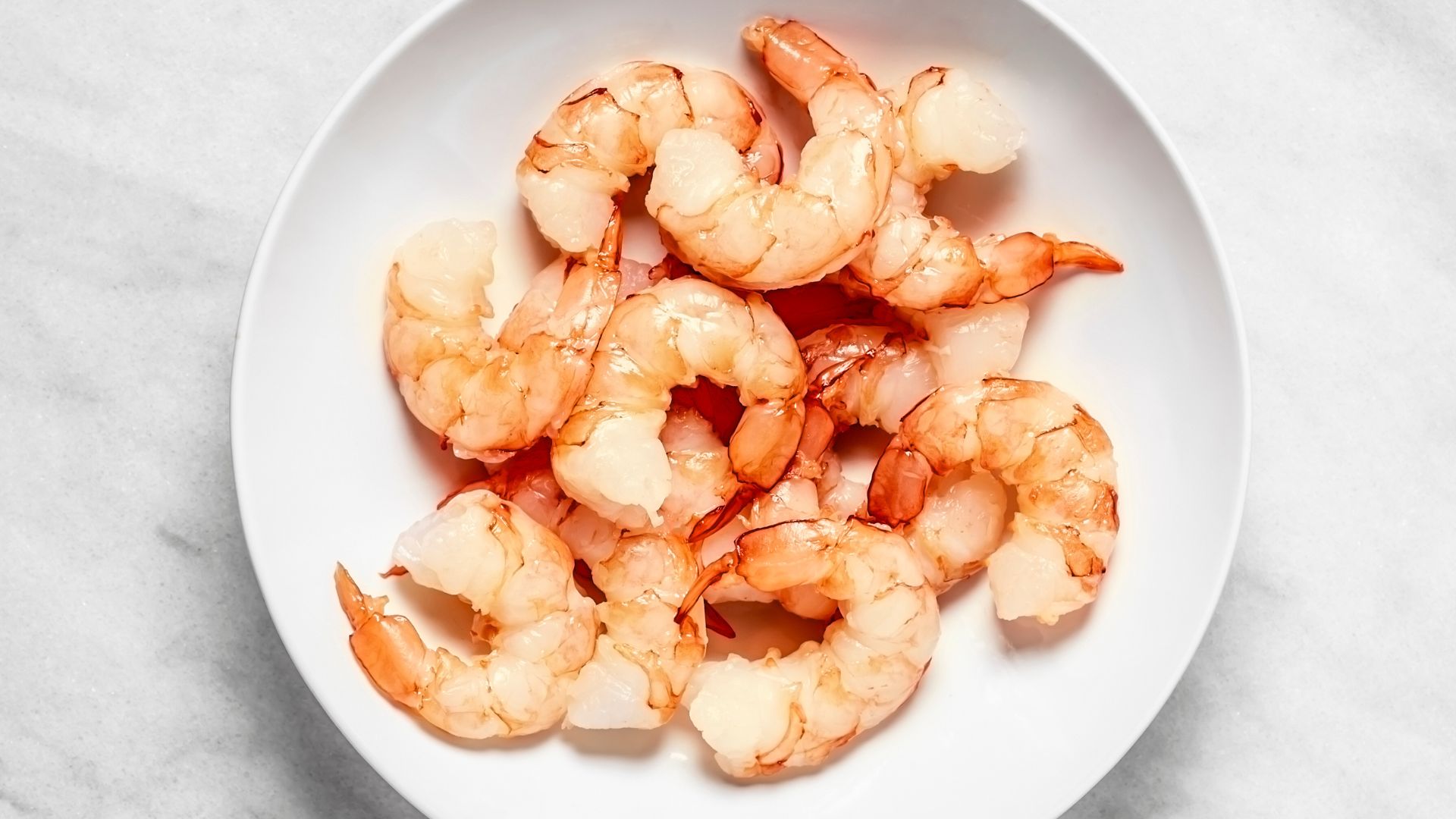
Looking to spice up your post-workout pasta or stir-fry? Throw in some prawns. These small shellfish are very high in good-quality protein and they are one of the very few foods that contain a full profile of all 20 essential and non-essential amino acids. As the building blocks of protein, which builds muscle, it's a good idea to get as many of these as possible.
29. Bulgur wheat
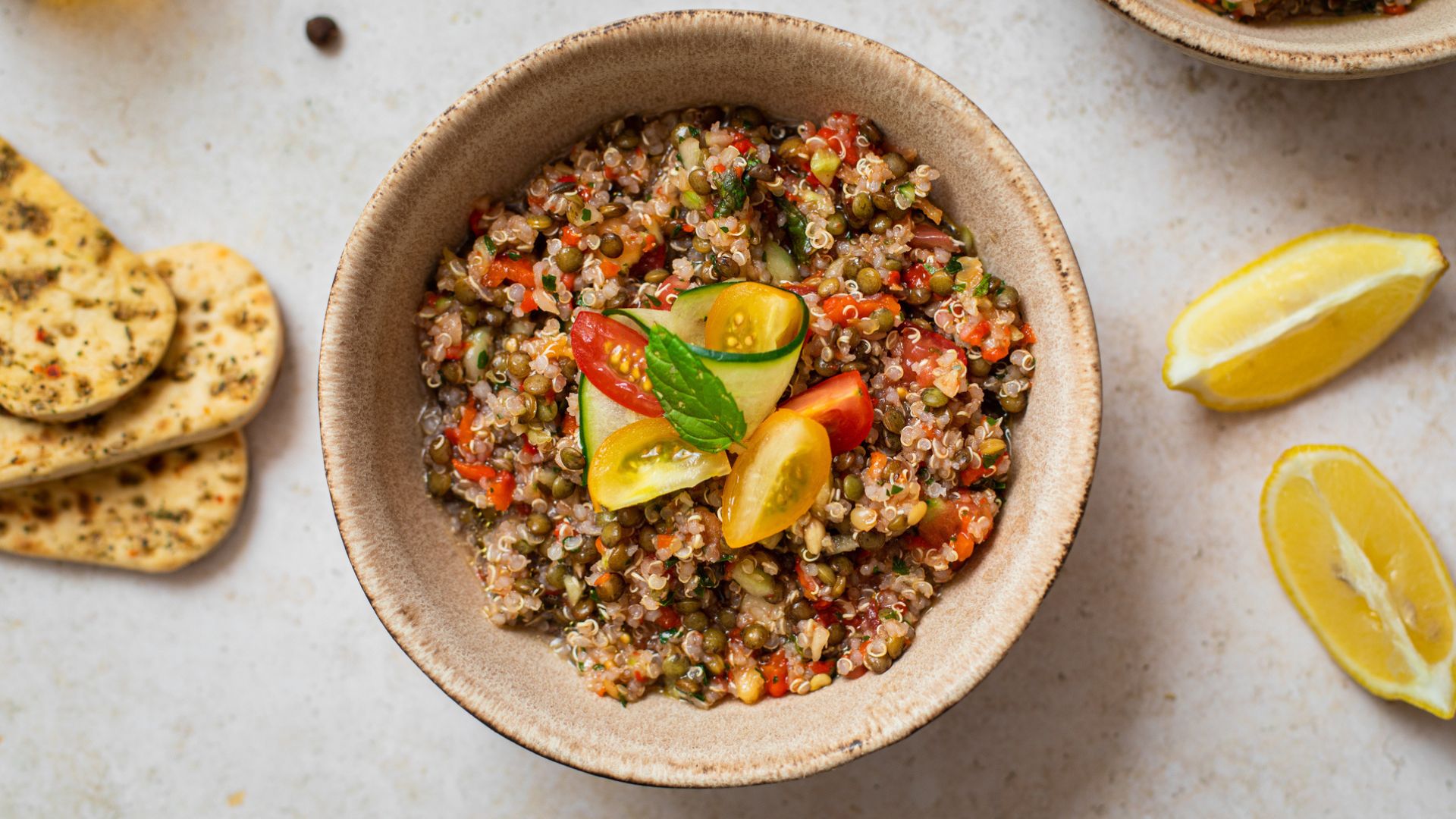
Bulgur wheat, along with quinoa and brown rice, are perfect alternatives to pasta and white rice if you find yourself getting hungry on an exercise-heavy day. It contains fewer calories than other options though and offers more fibre per serving than any other grain, with 4g of fibre and 12.6g of protein per 100g.
30. Tomatoes
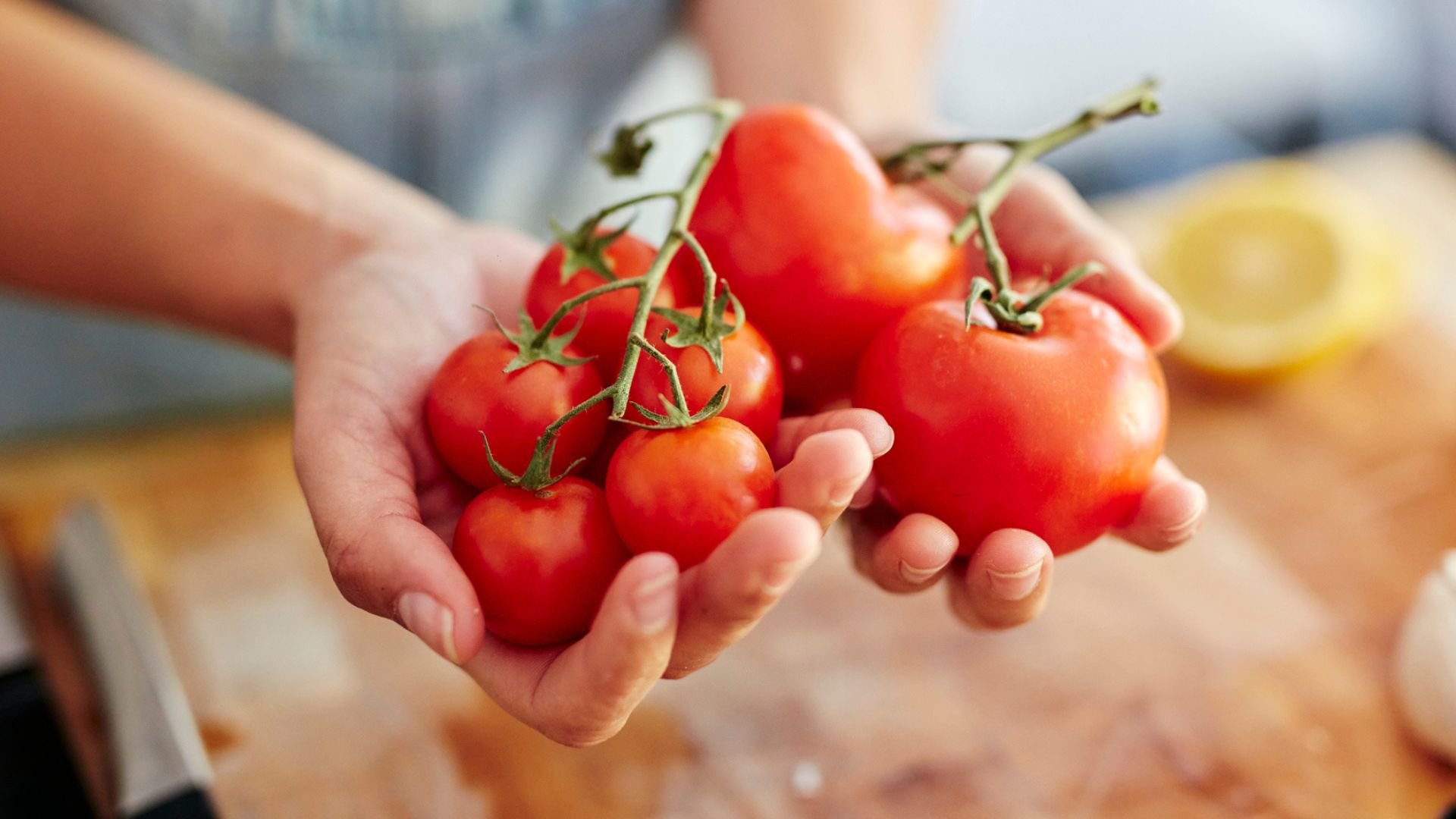
When it comes to the best foods to eat after a workout, we always think of protein, carbohydrate, and vitamin-rich foods. Tomatoes are certainly rich in vitamin C, more so than other fruits like oranges, but they also offer a solid form of rehydration.
Tomatoes, whether that's chunky full-sized tomatoes or small, cherry red tomatoes, contain good levels of electrolytes like potassium, sodium, and magnesium, which are all needed to replenish our hydration after a sweaty workout.
31. Wholewheat pasta
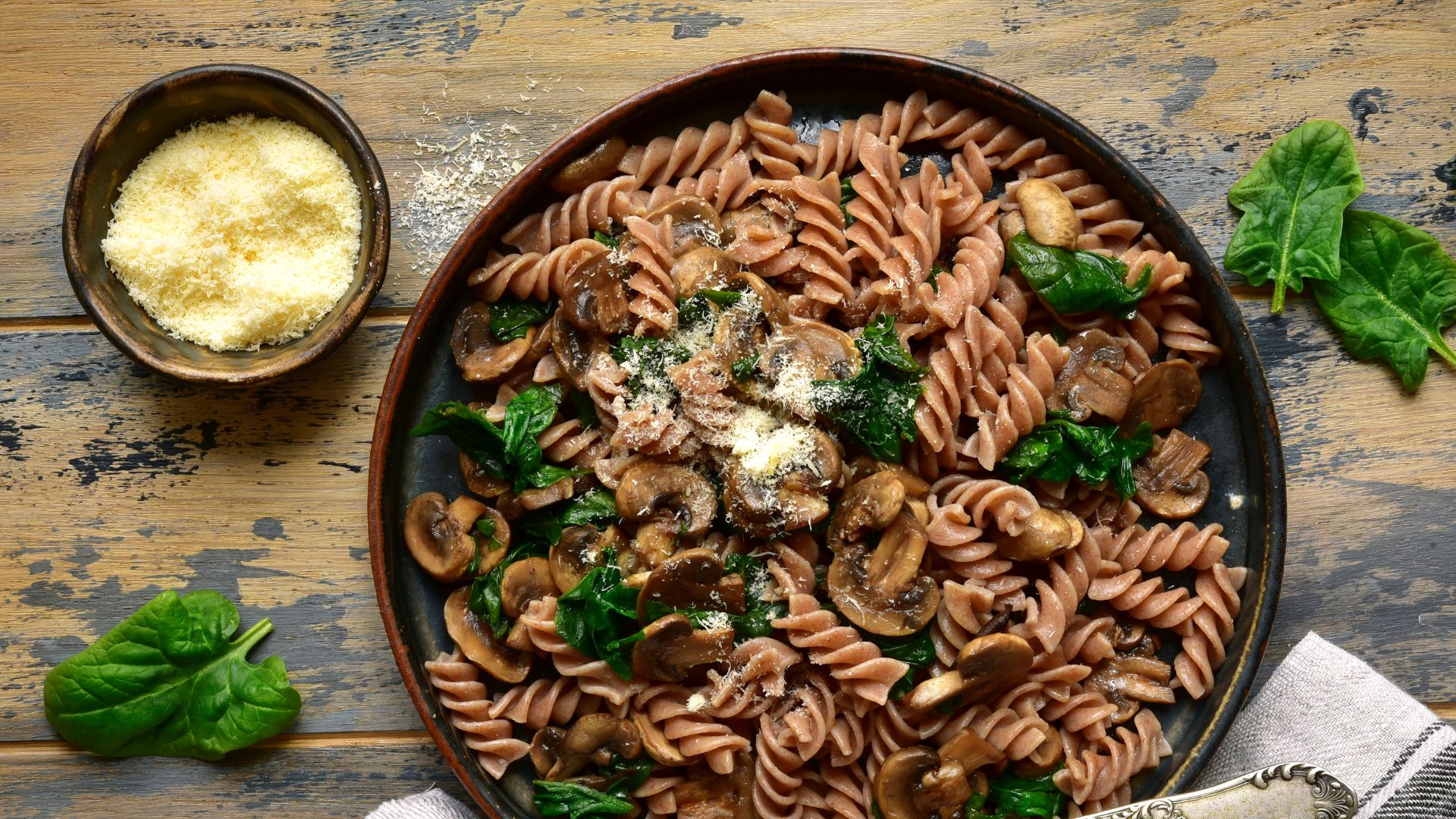
Wholewheat pasta is an easy, nutrient-dense addition to your post-workout meal. It can also be prepared in advance and kept up to three days - so no excuses for having something in the fridge!
Much like other wholegrains, wholewheat pasta is full of slow-release carbohydrates that work better than pasta made of white flour to disperse energy given out throughout the day.
32. Chocolate milk
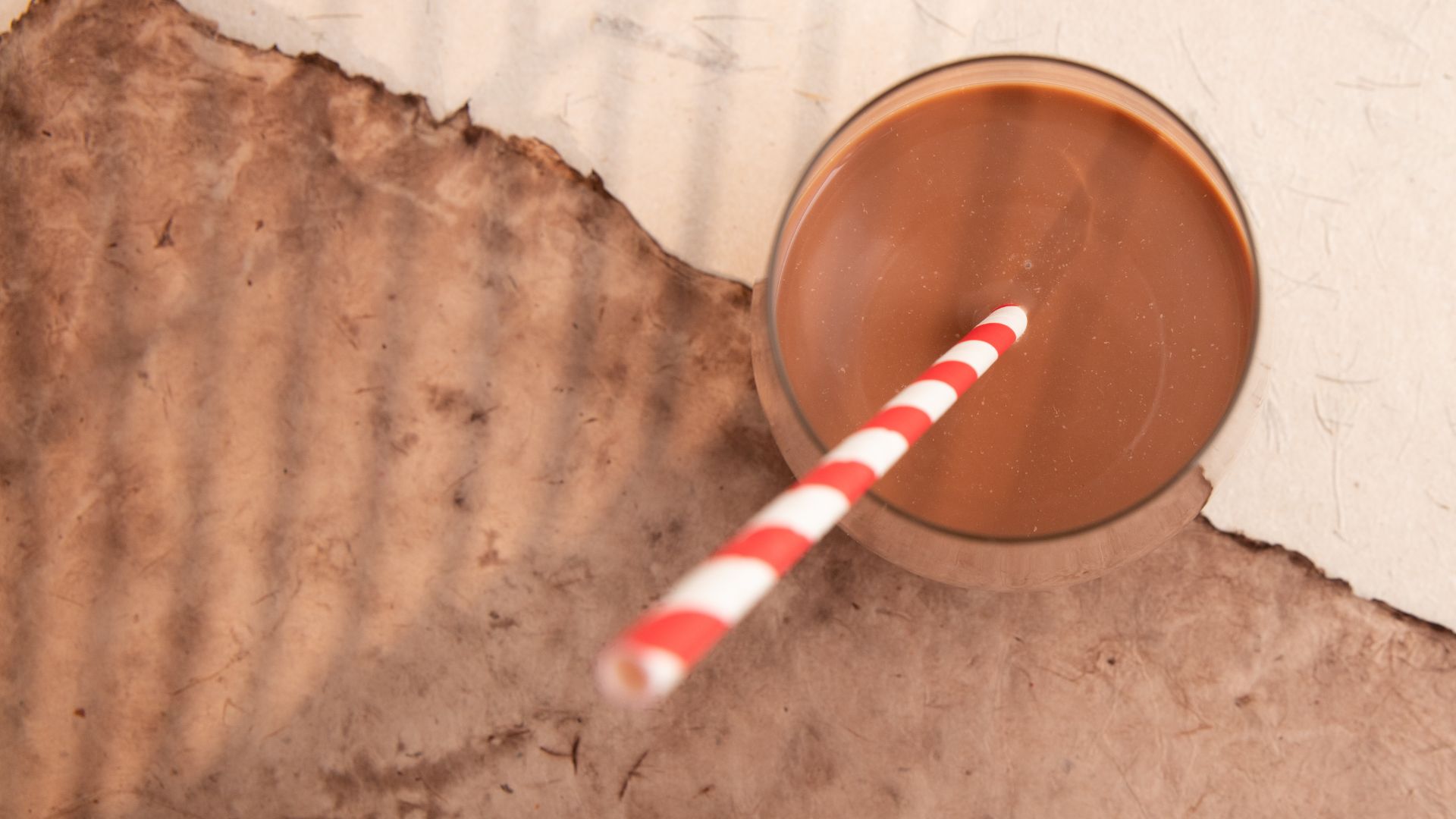
Chocolate milk might be one of the more surprising post-workout foods - but trust us on this one. This sugar-rich drink contains almost double the carbohydrate content of regular cow's milk, water, or even most brands of sports drinks, which is perfect for refuelling fatigued muscles.
To get the optimum 15 to 25g of protein needed as well, you should aim to drink around 750ml of chocolate milk.







